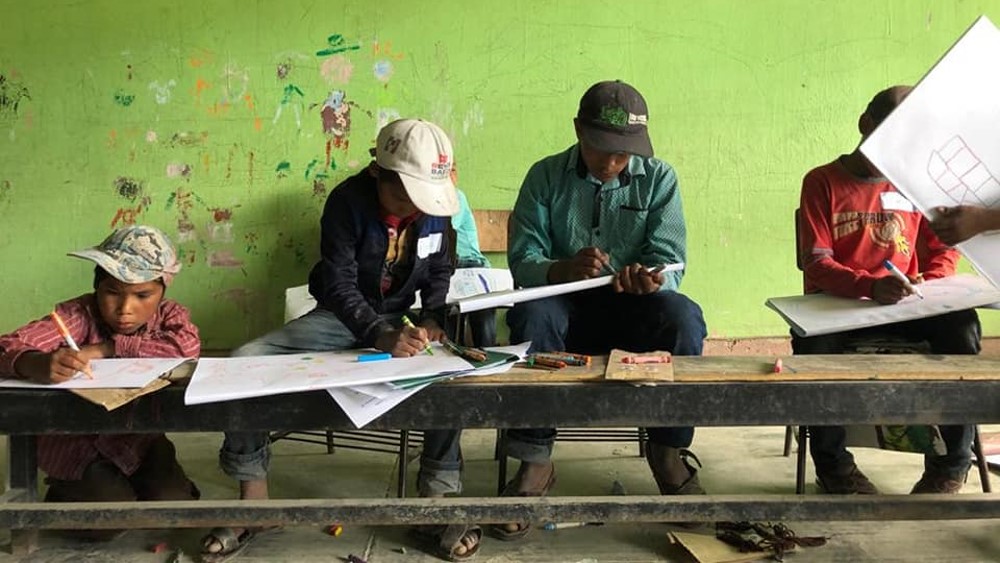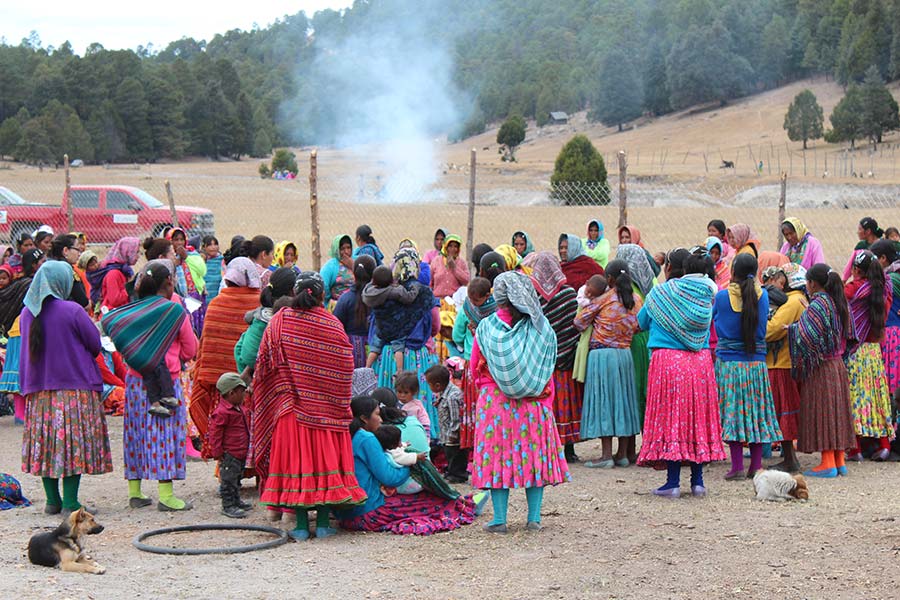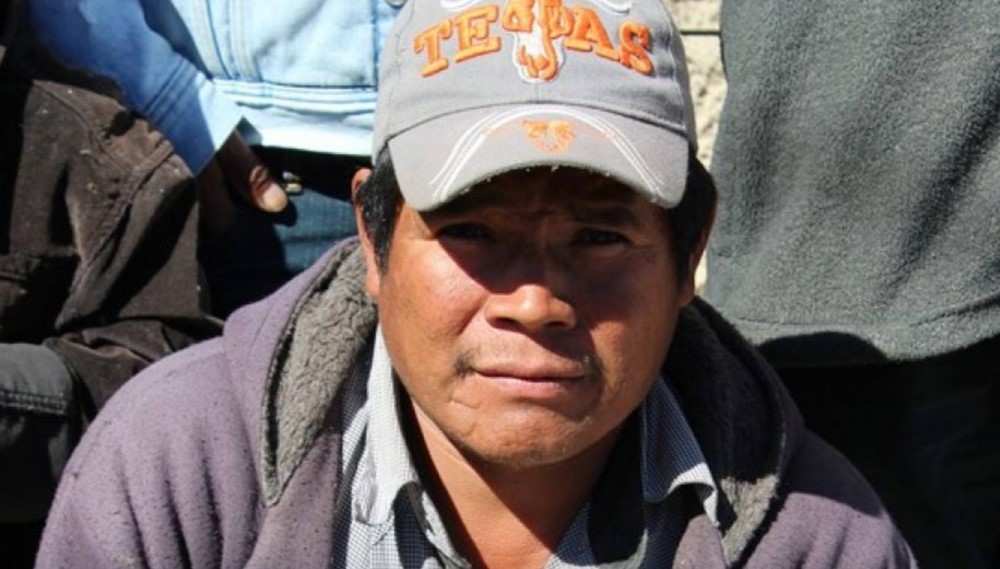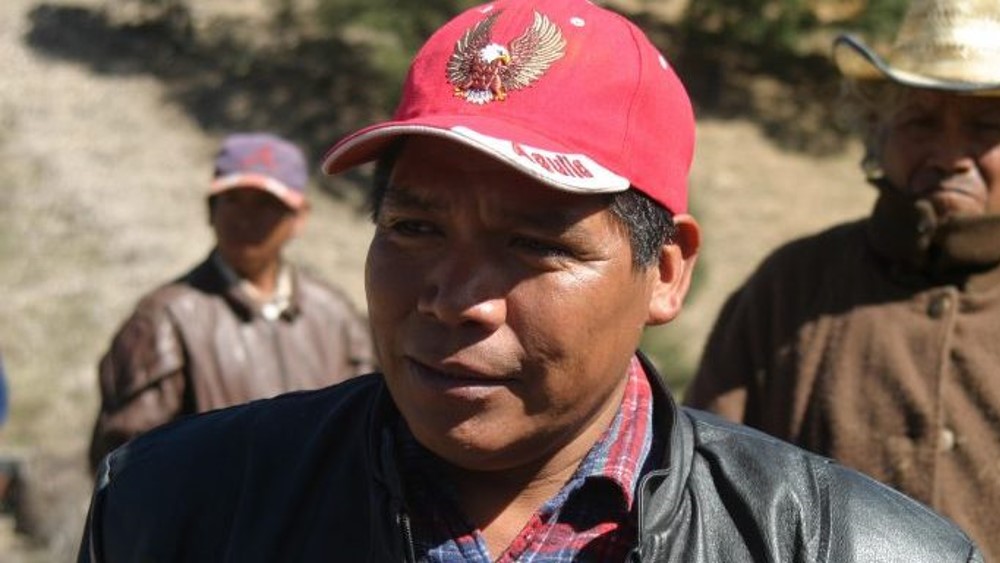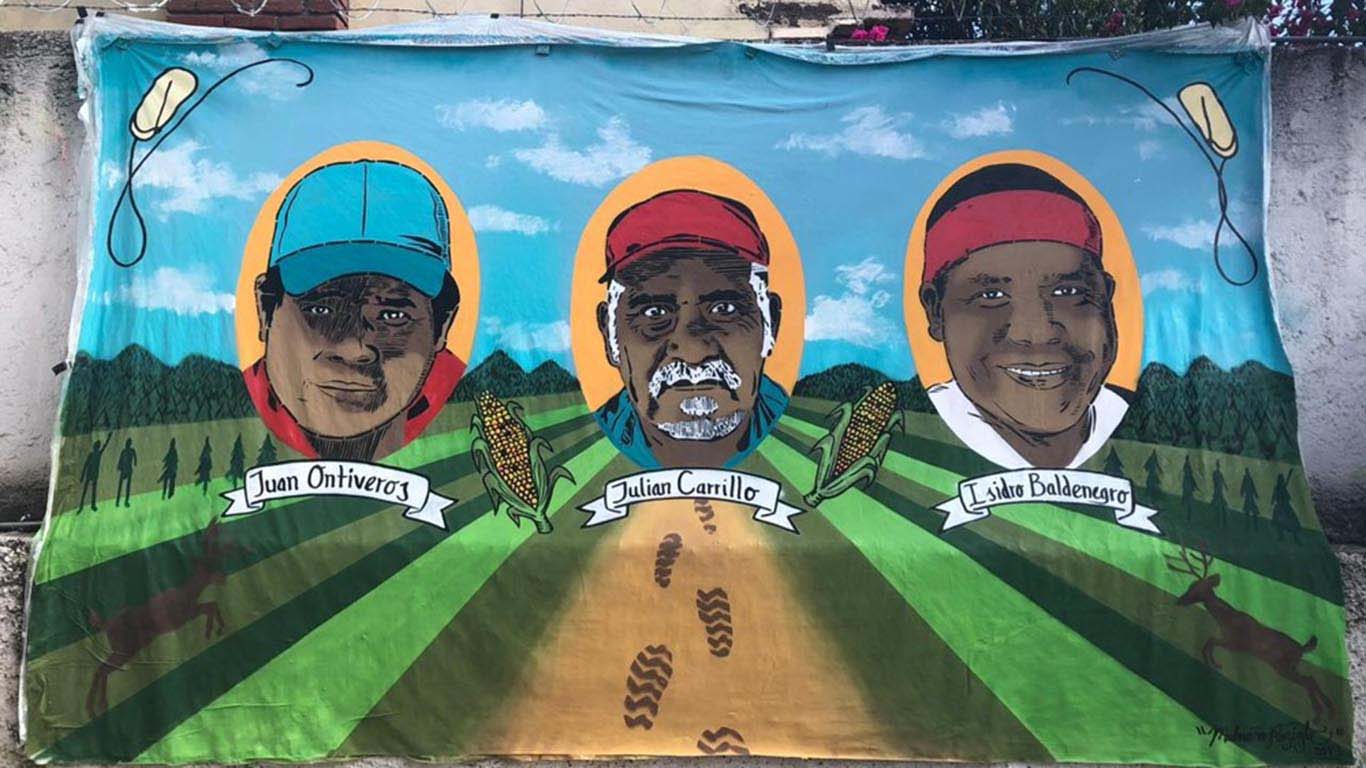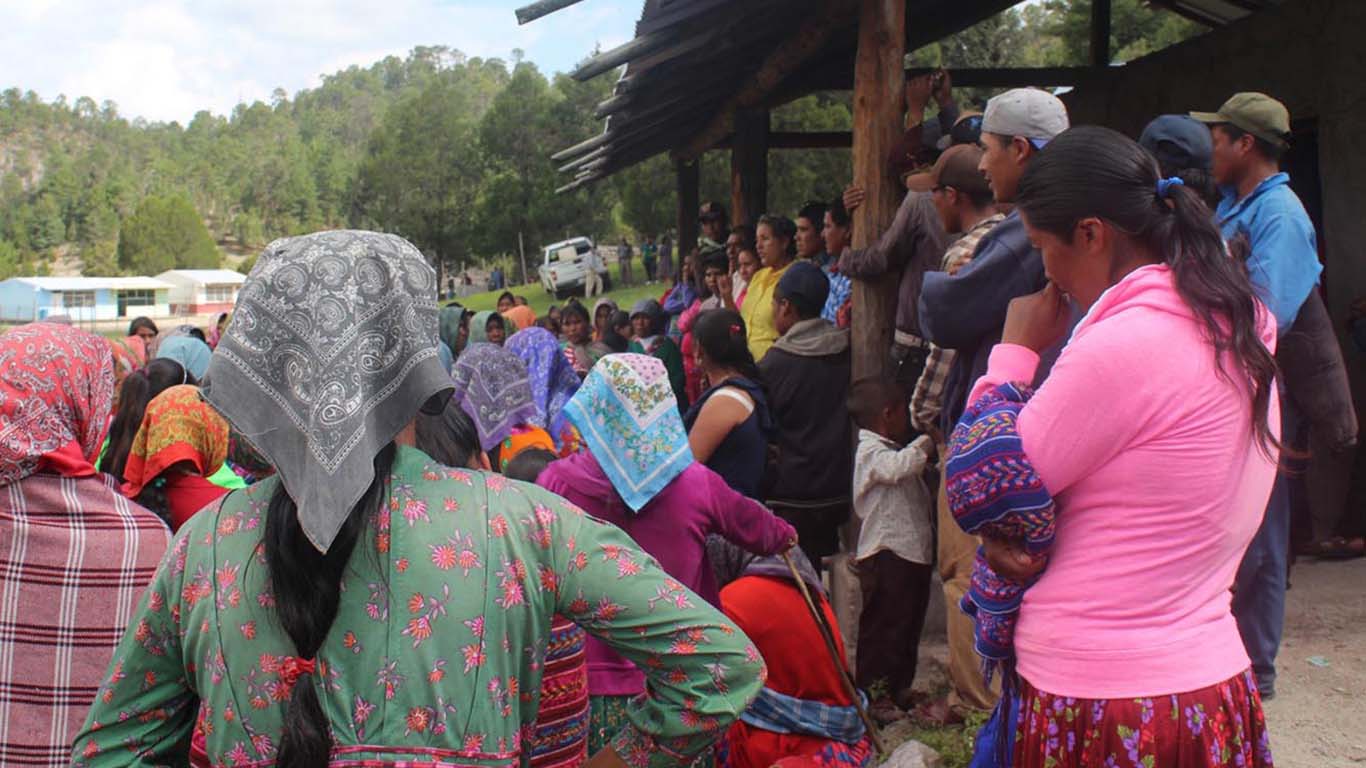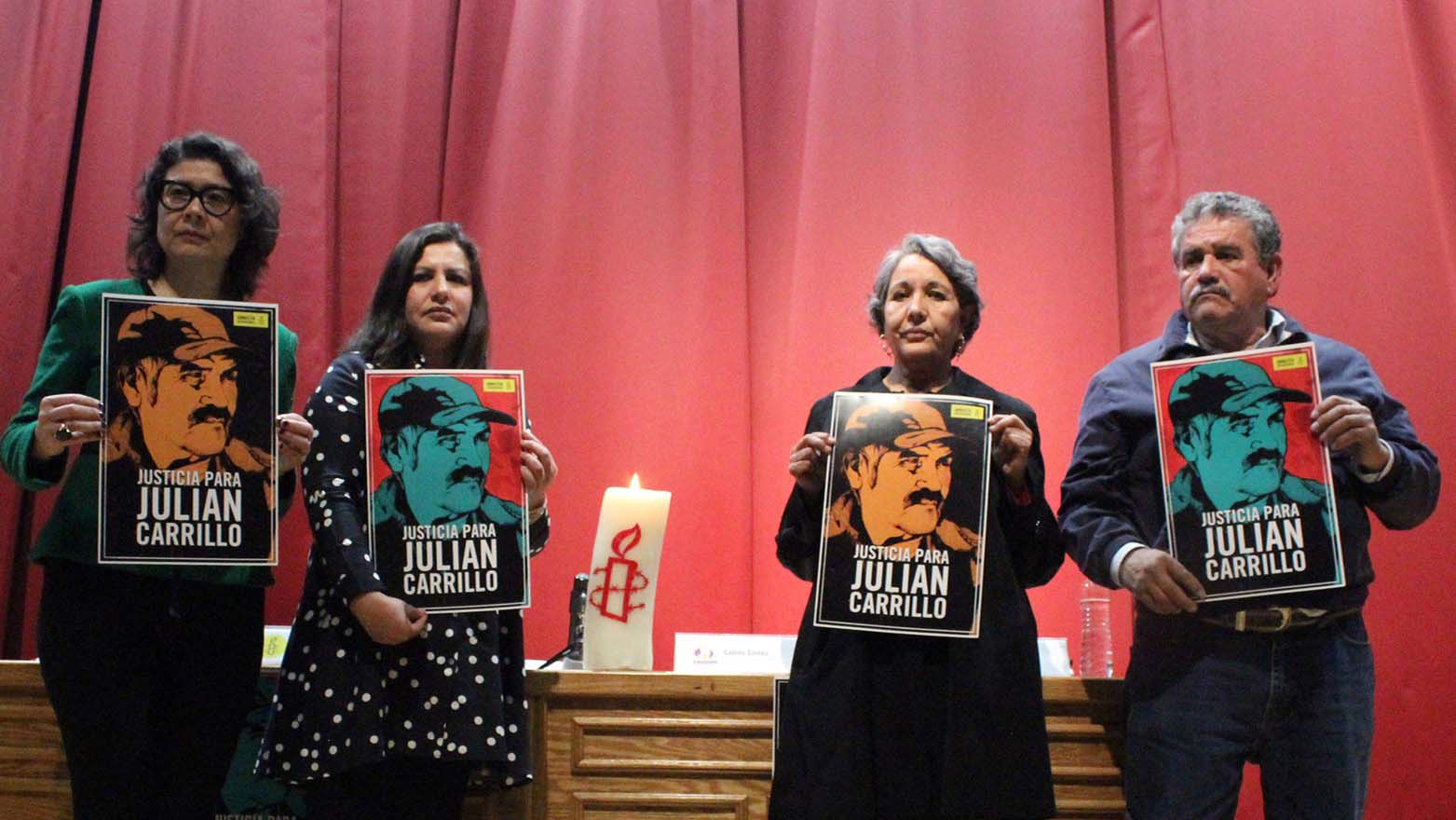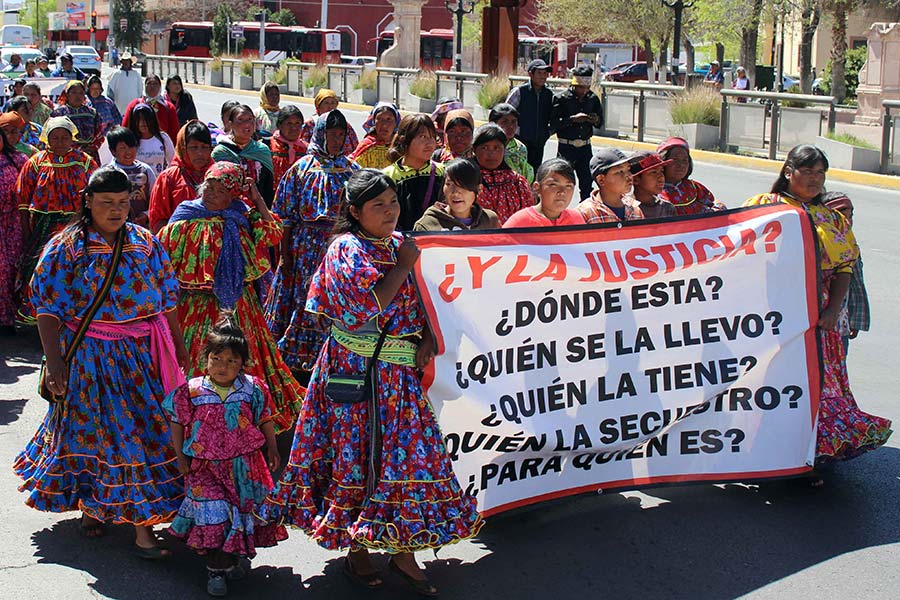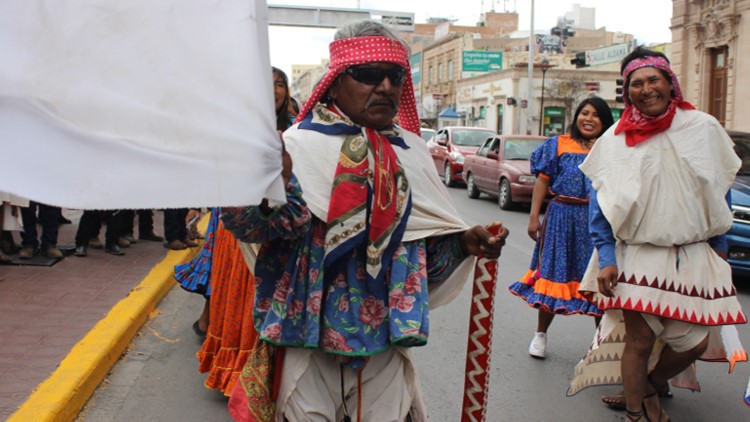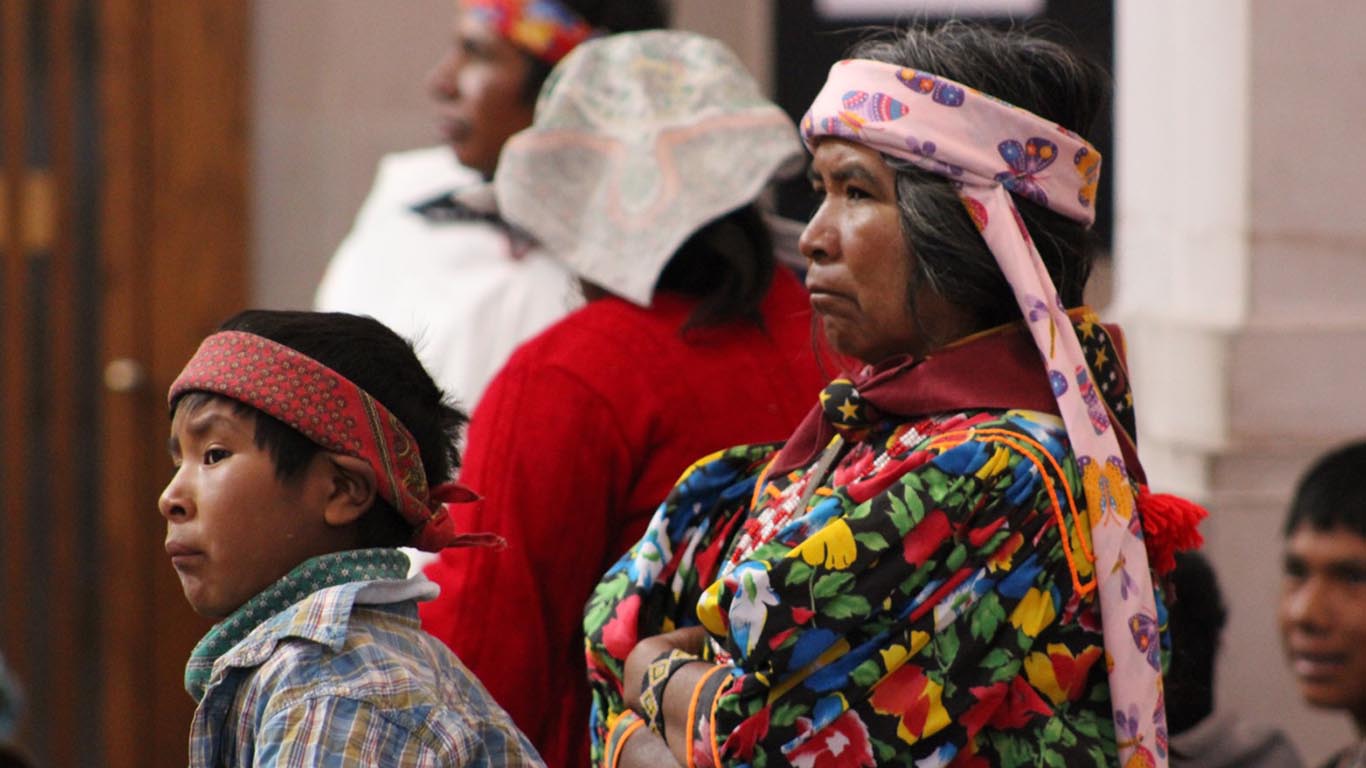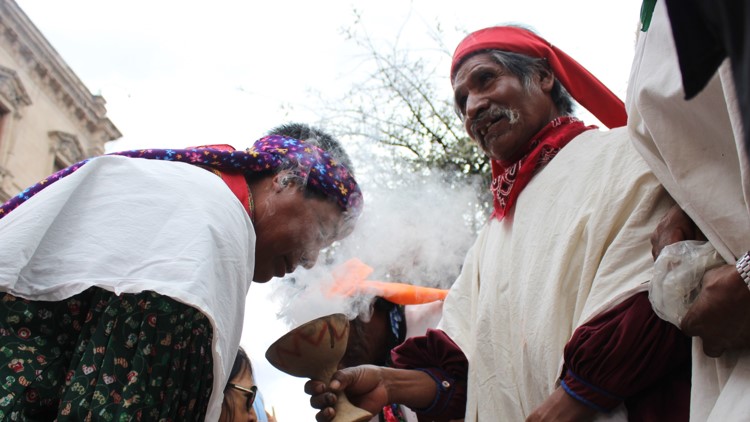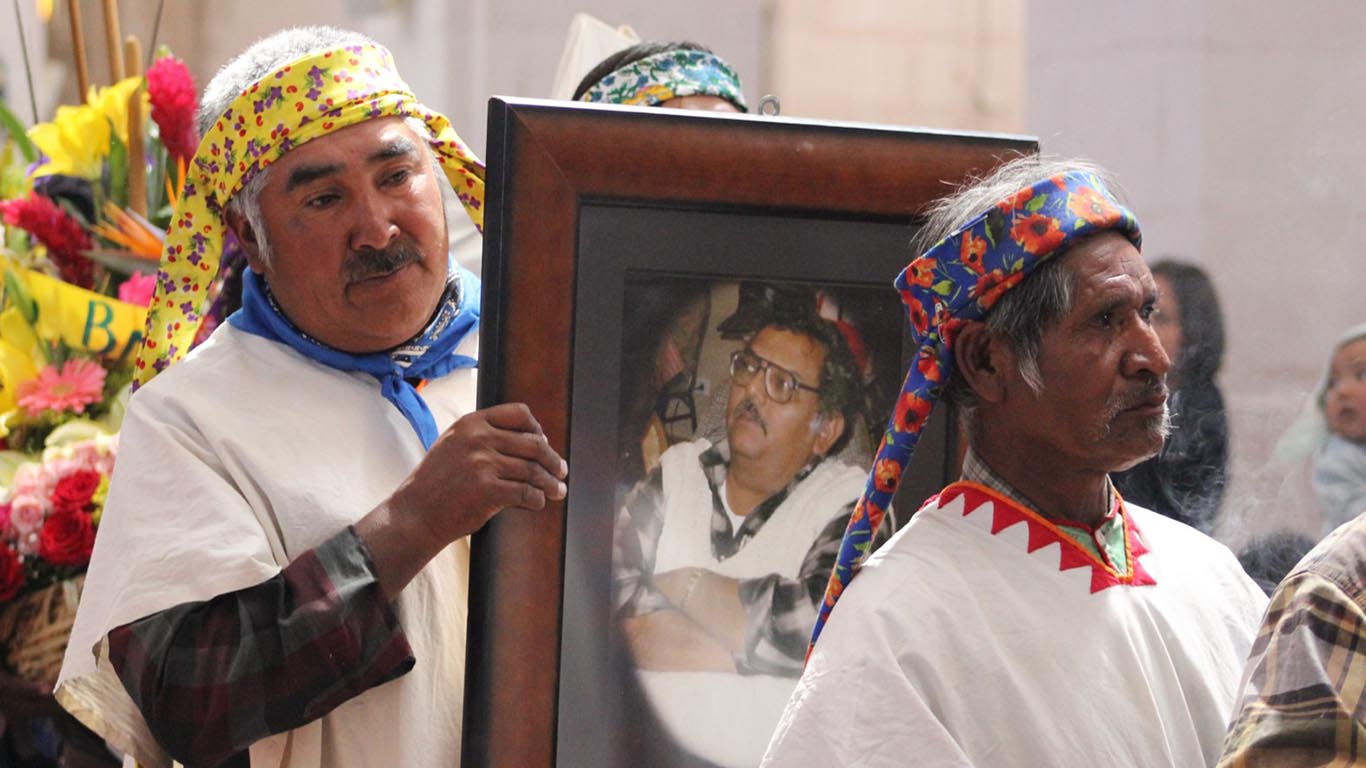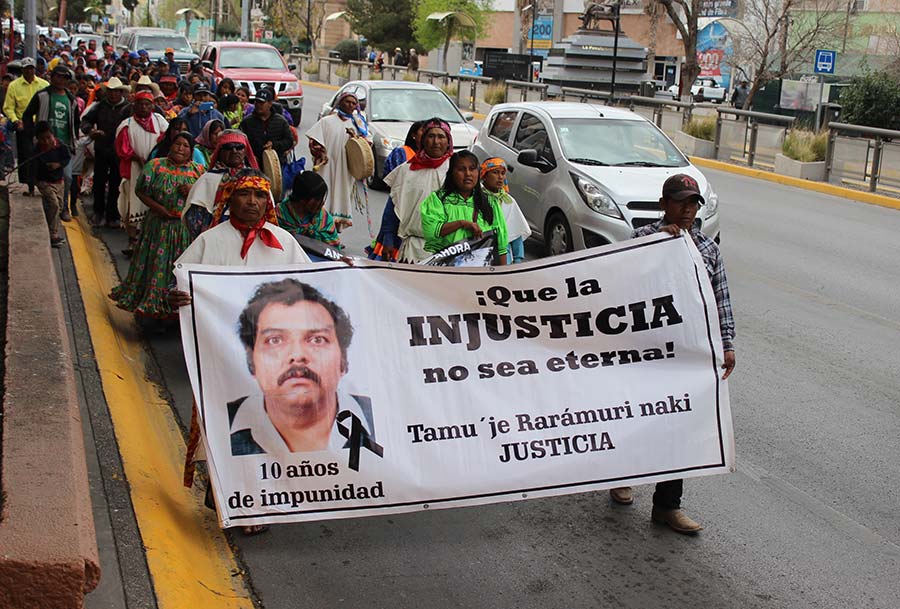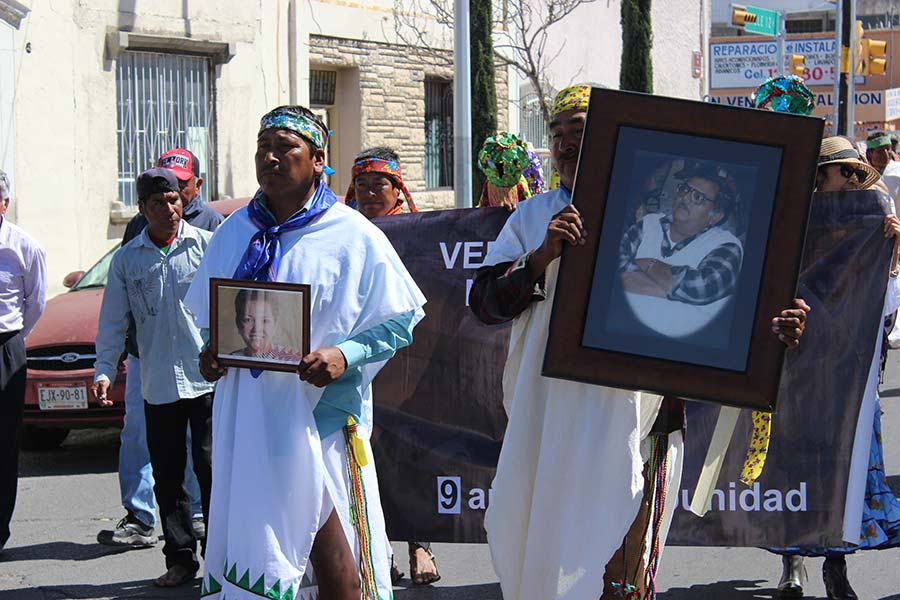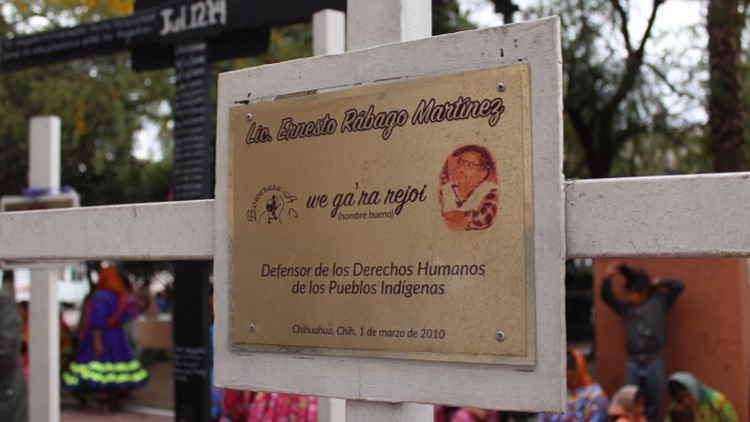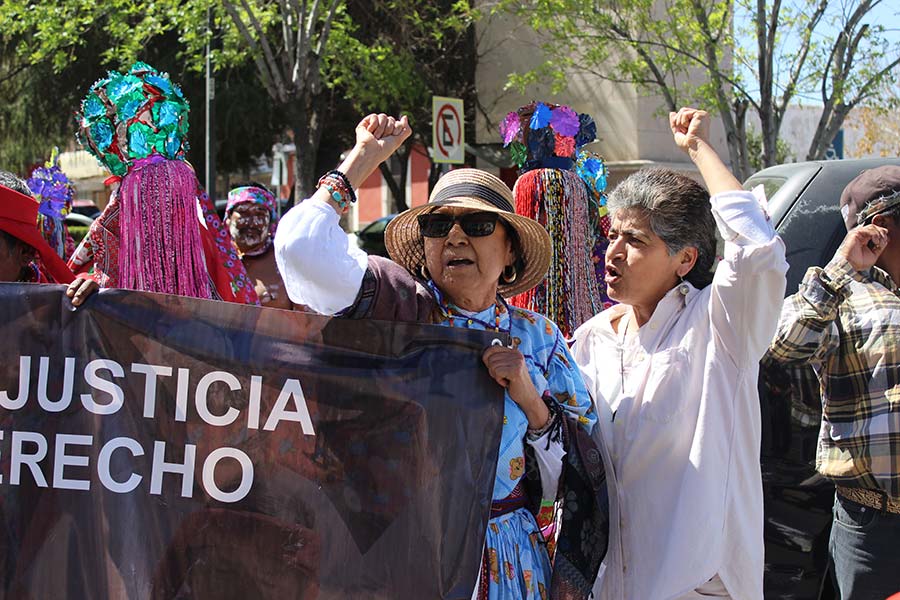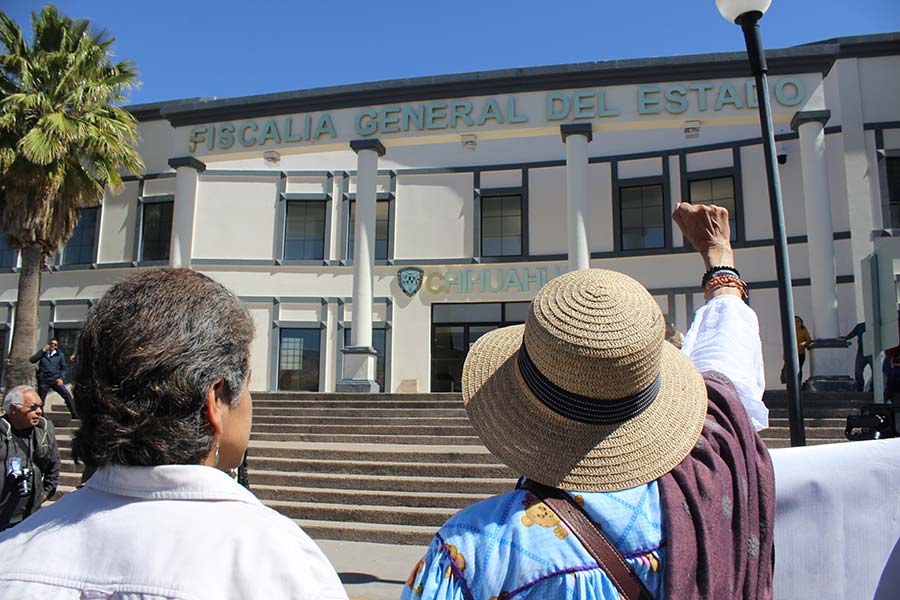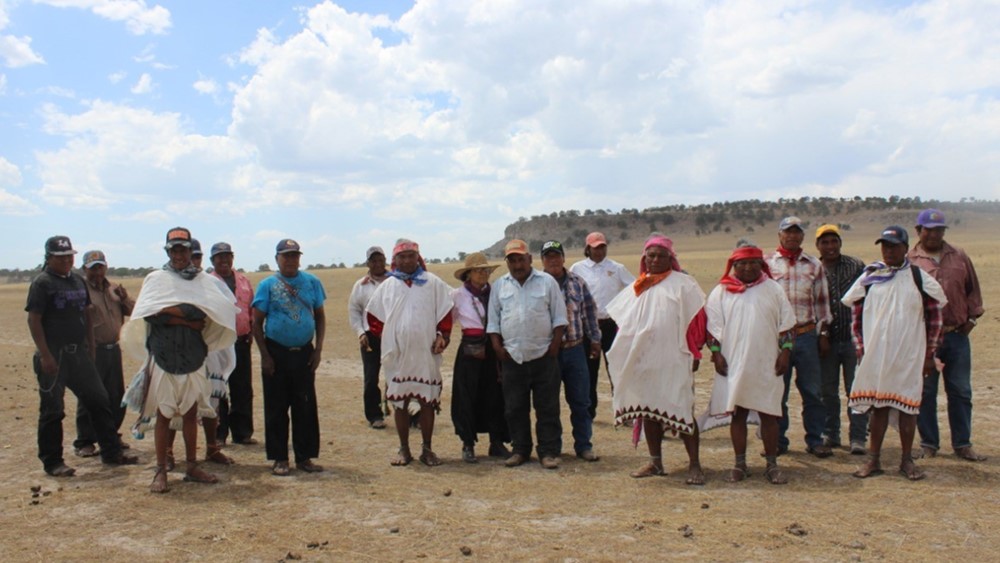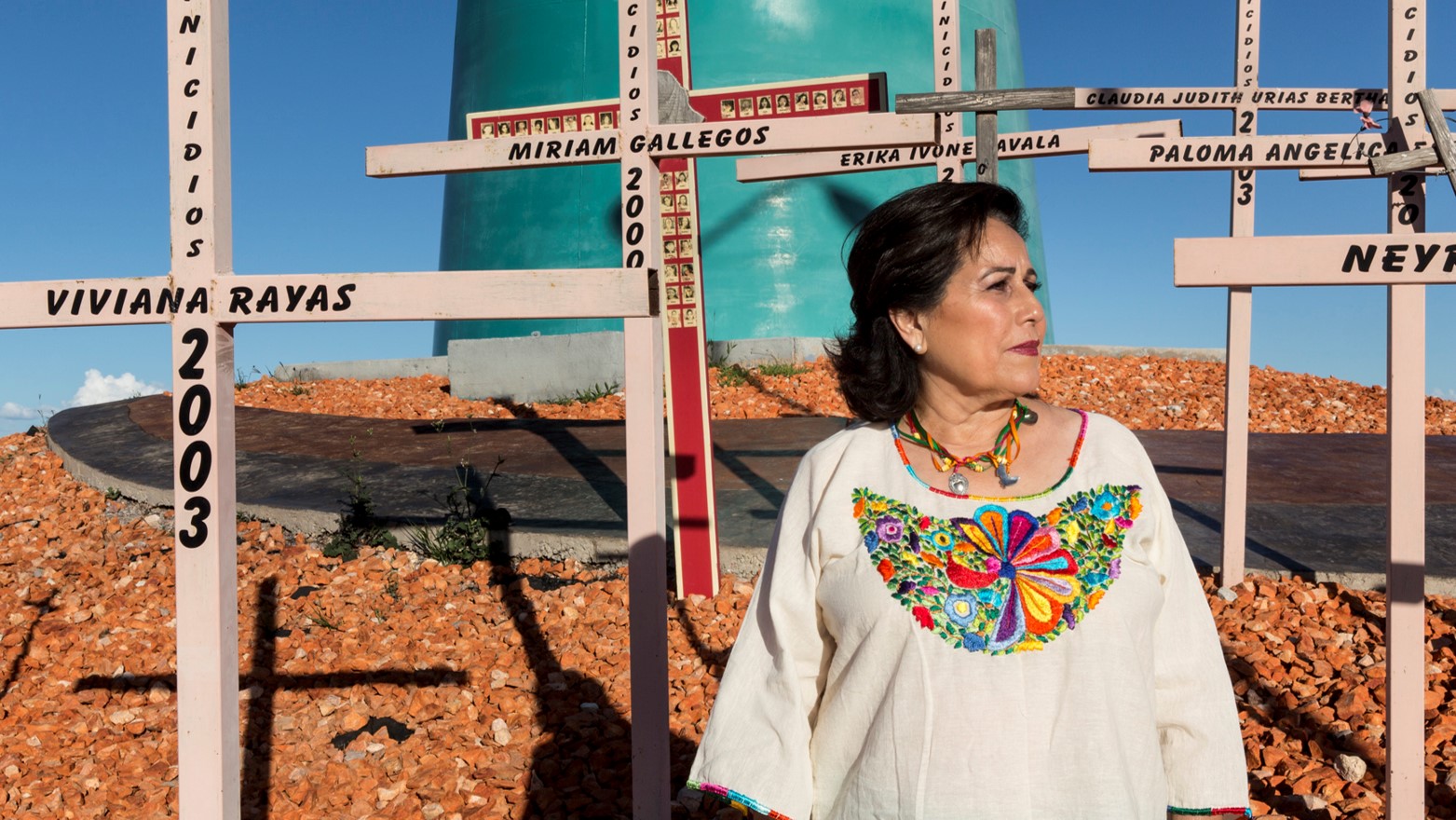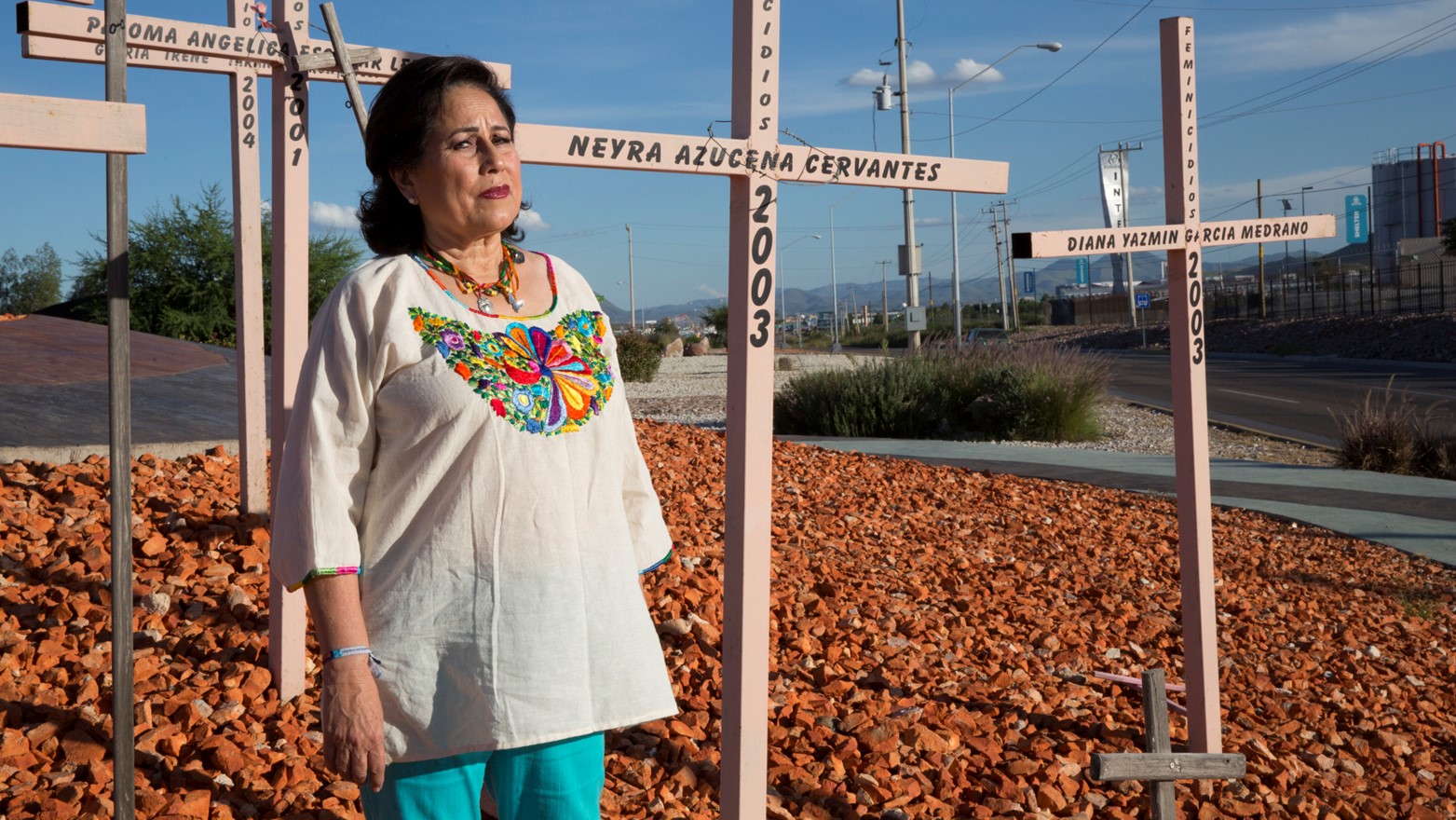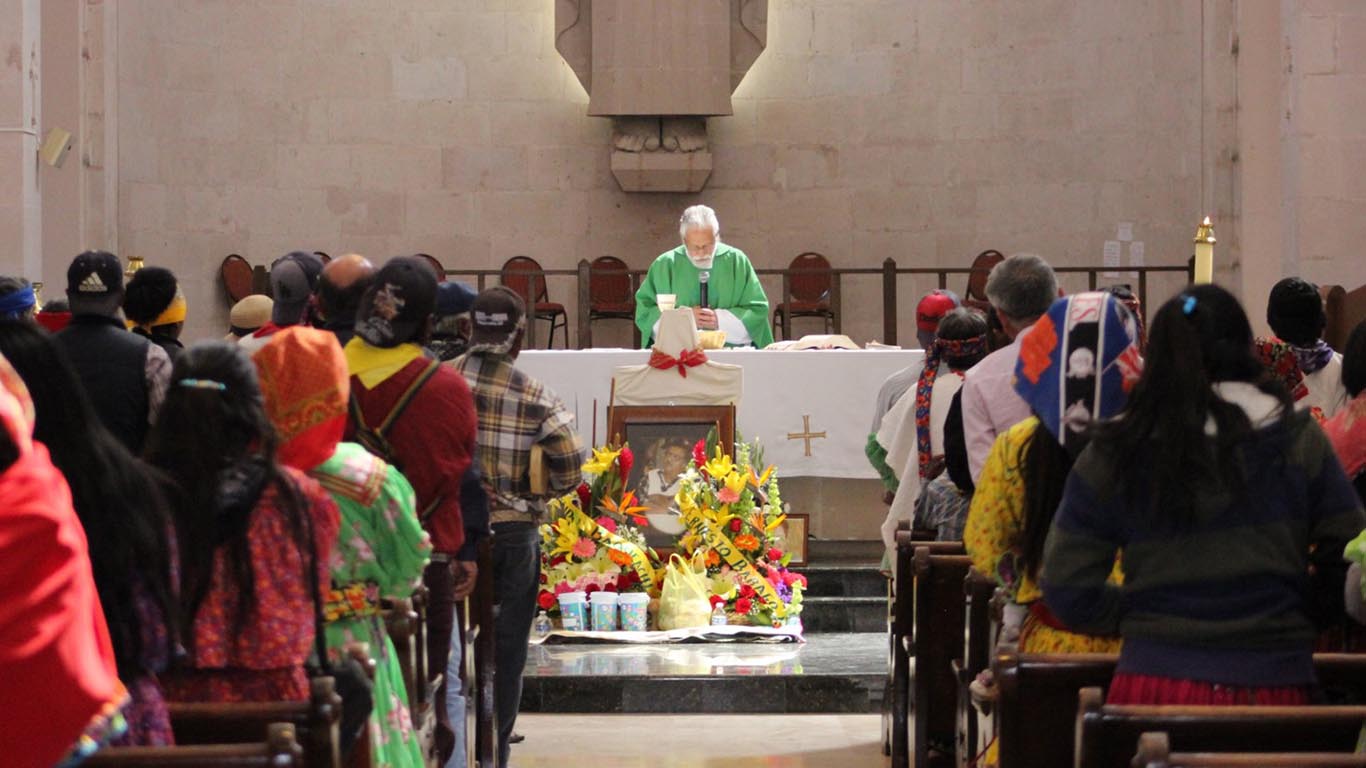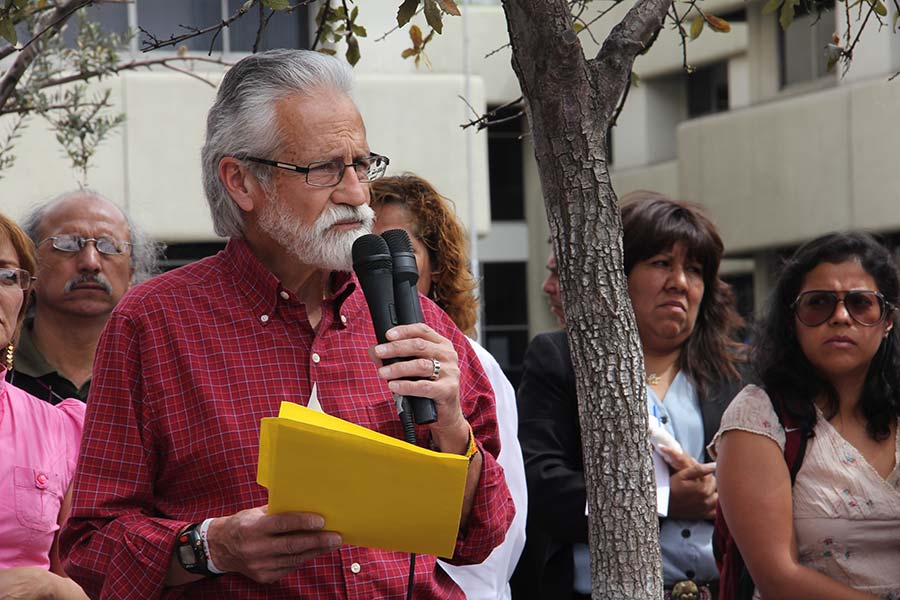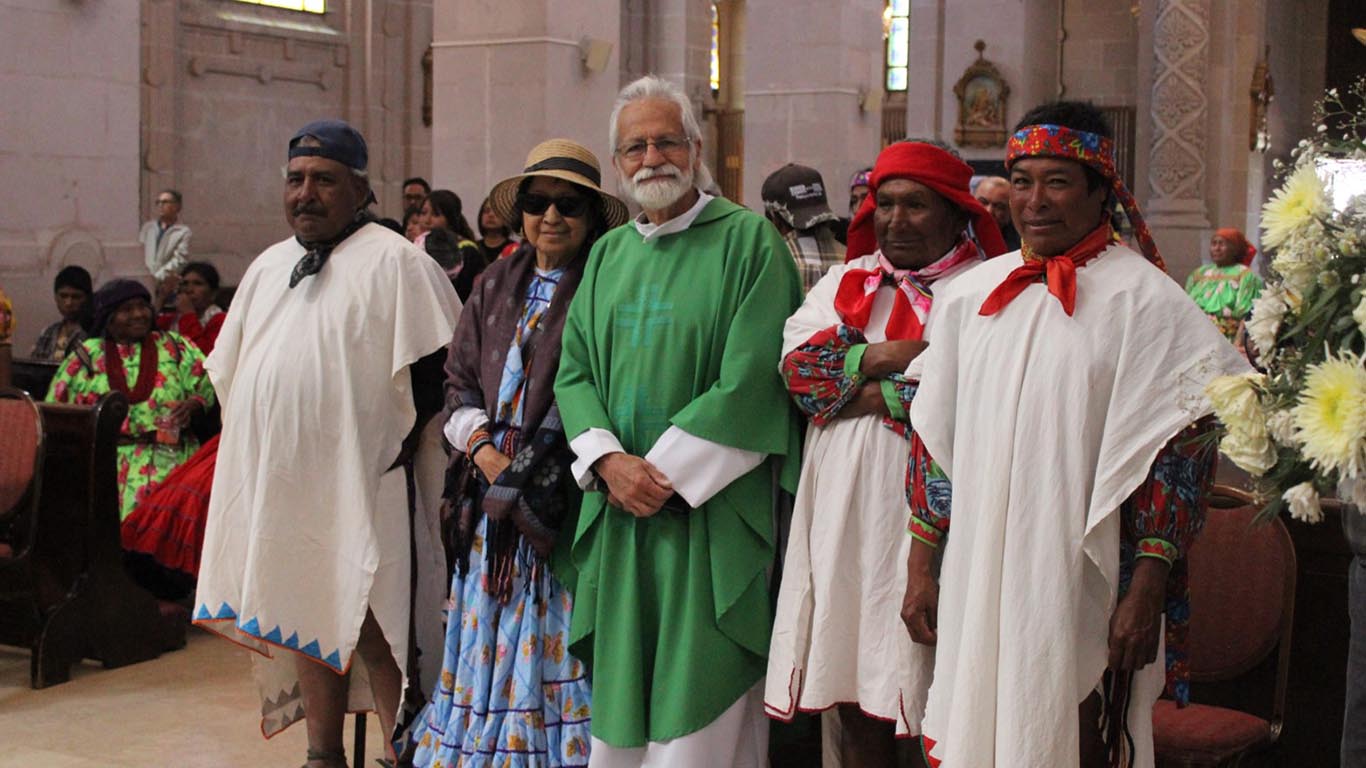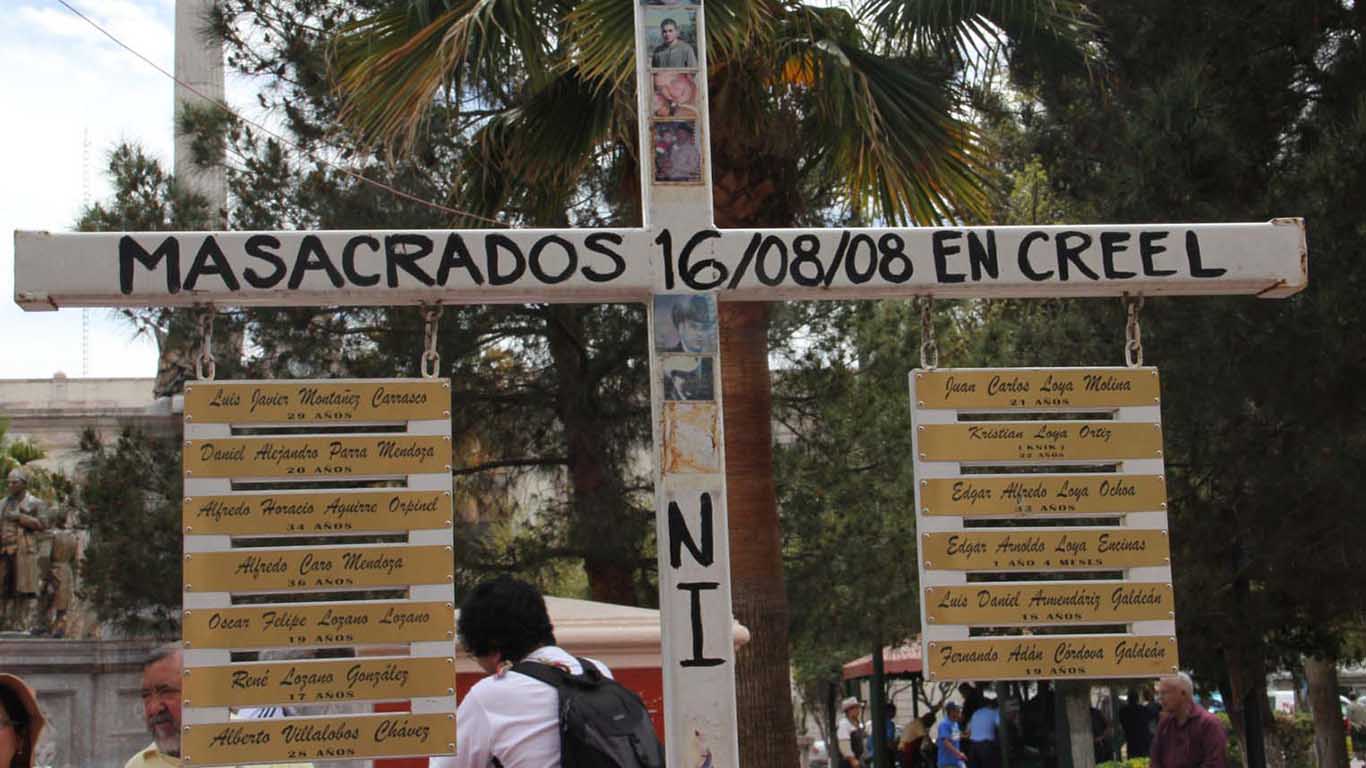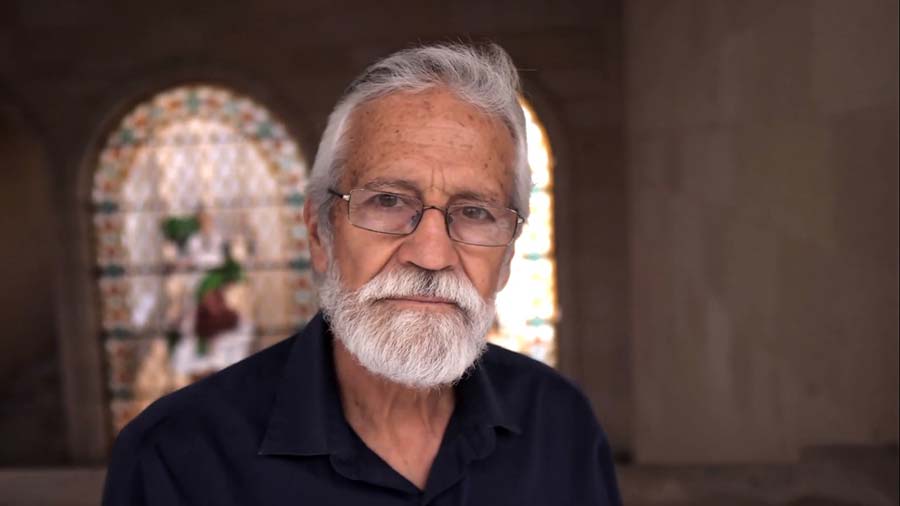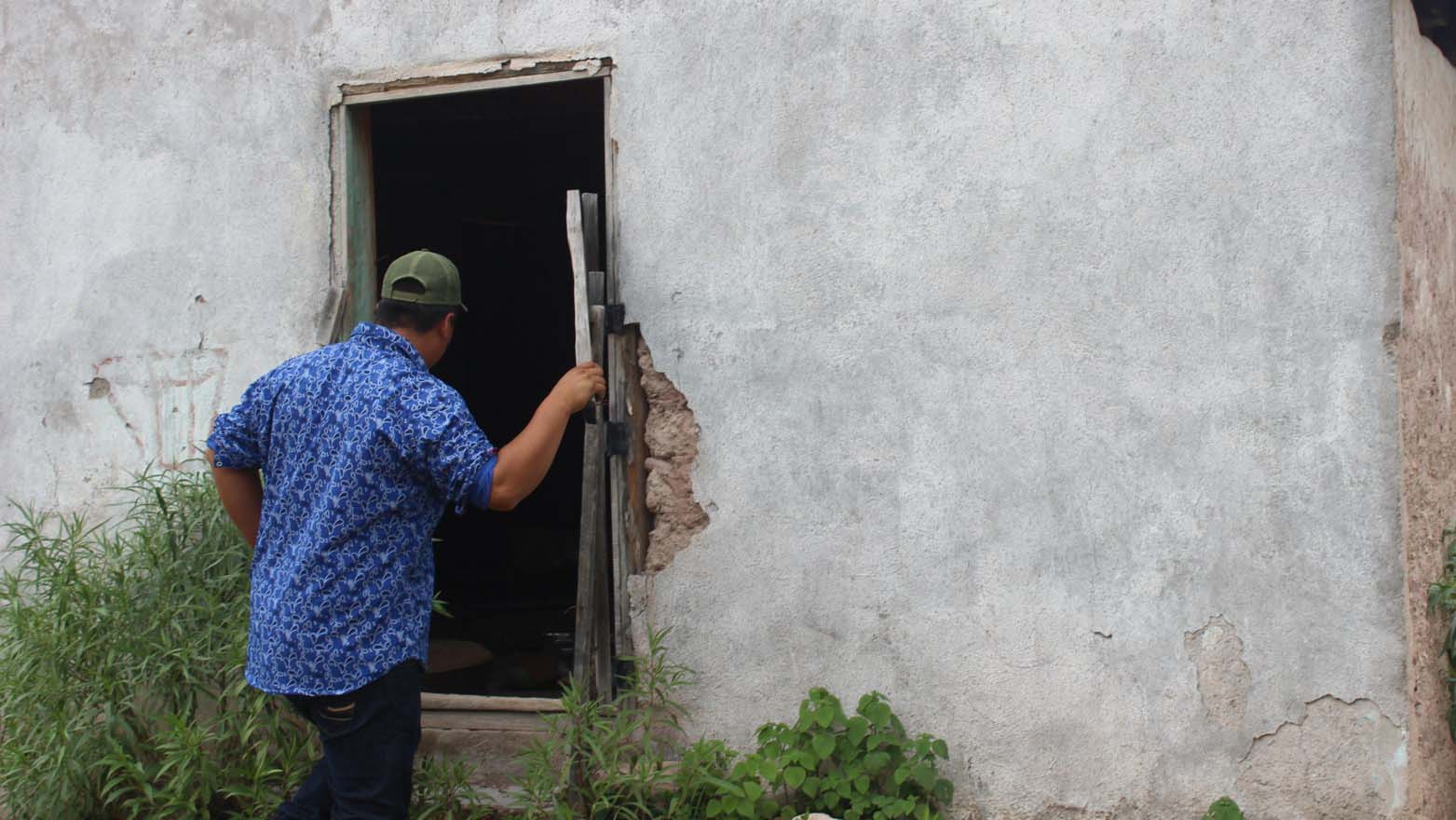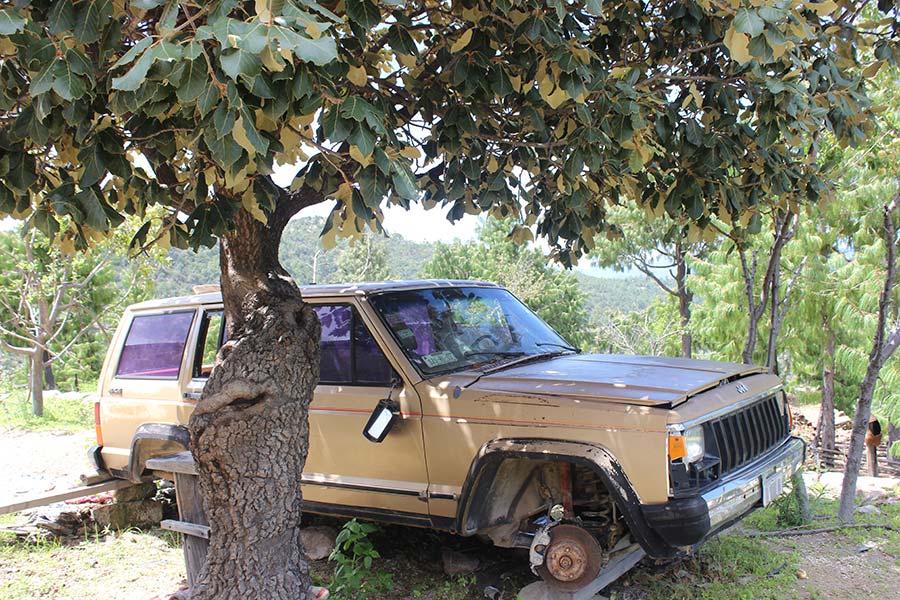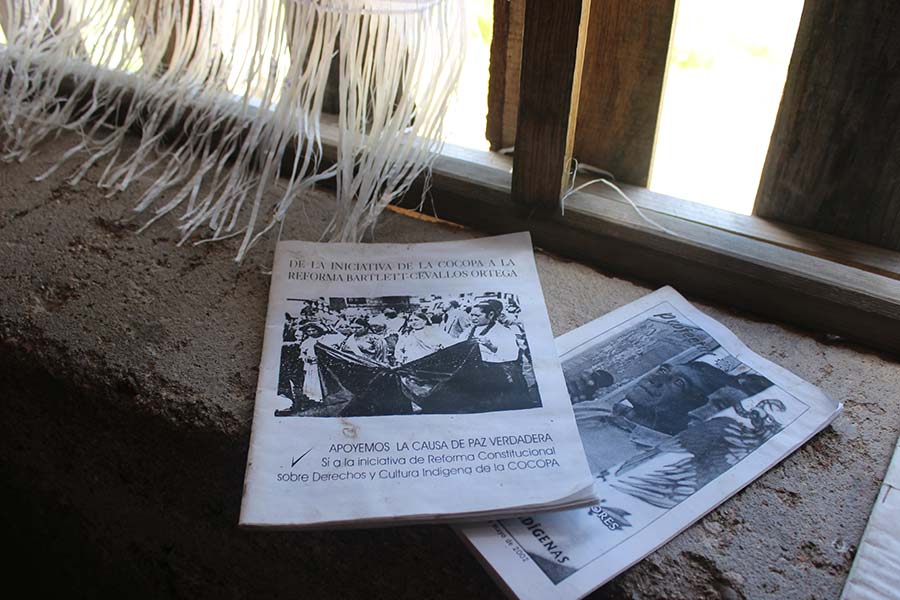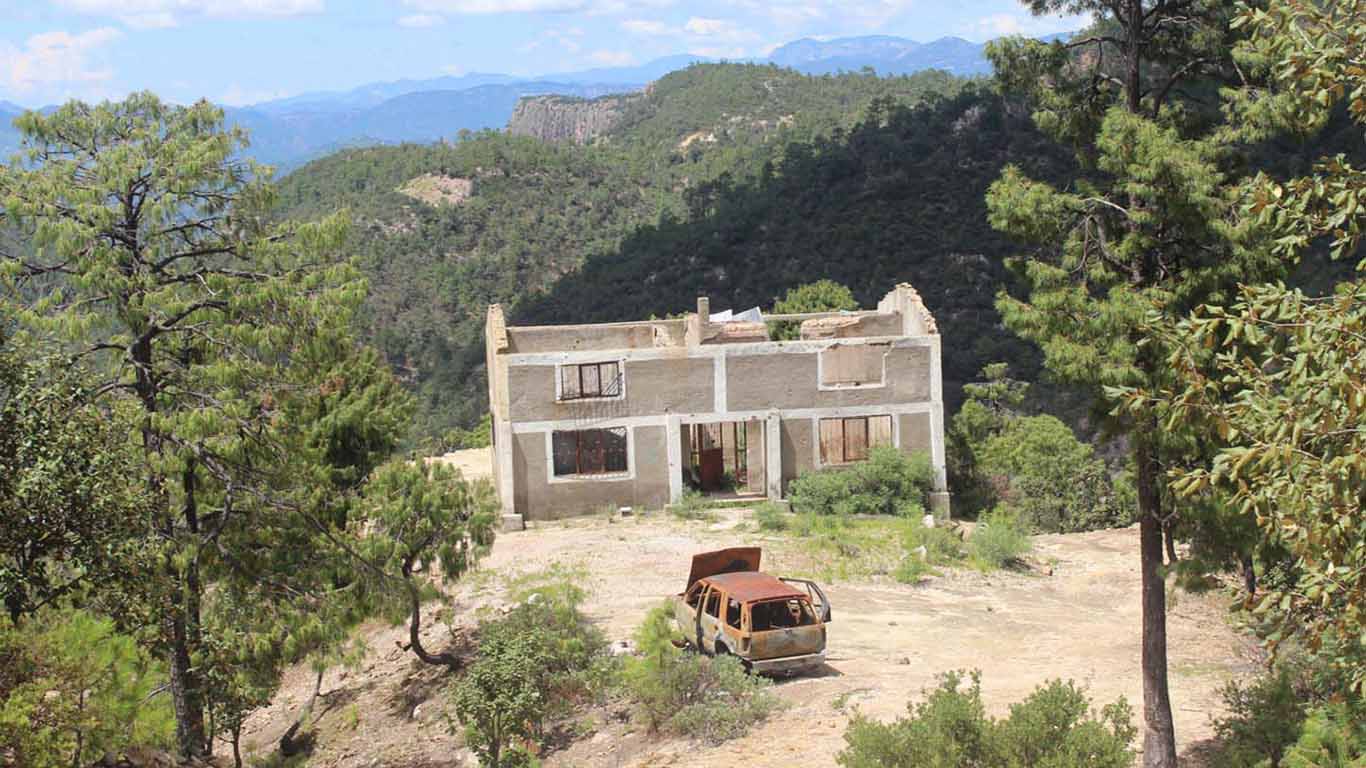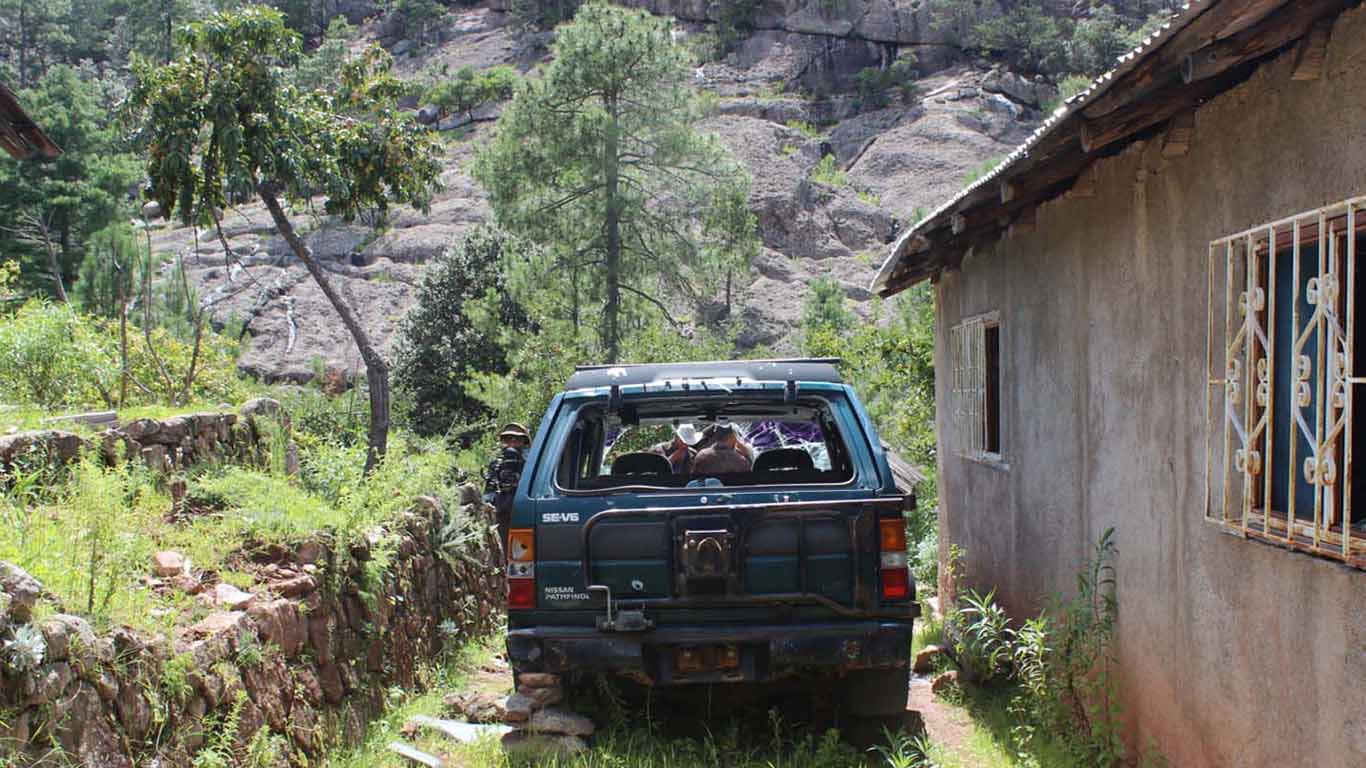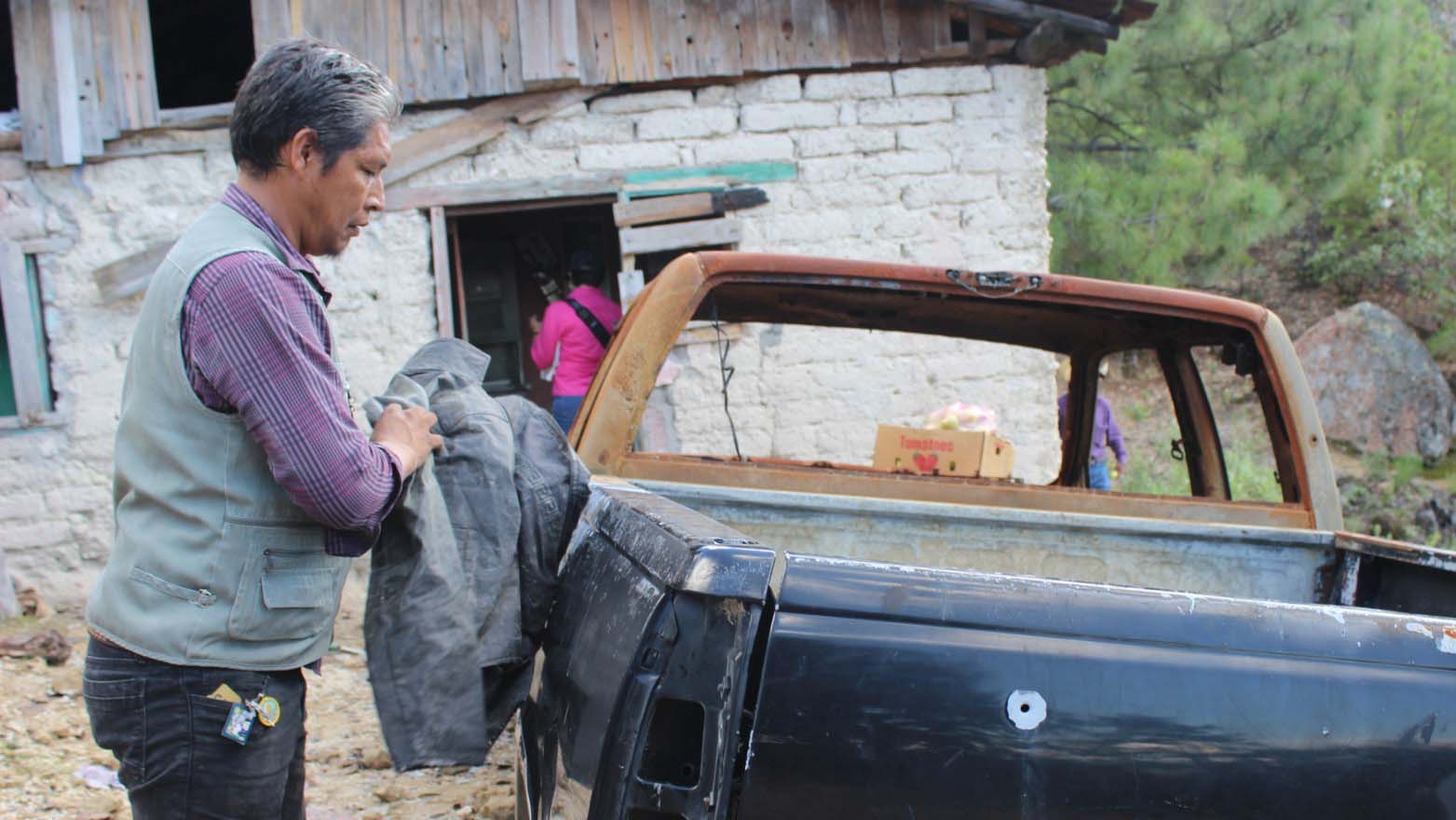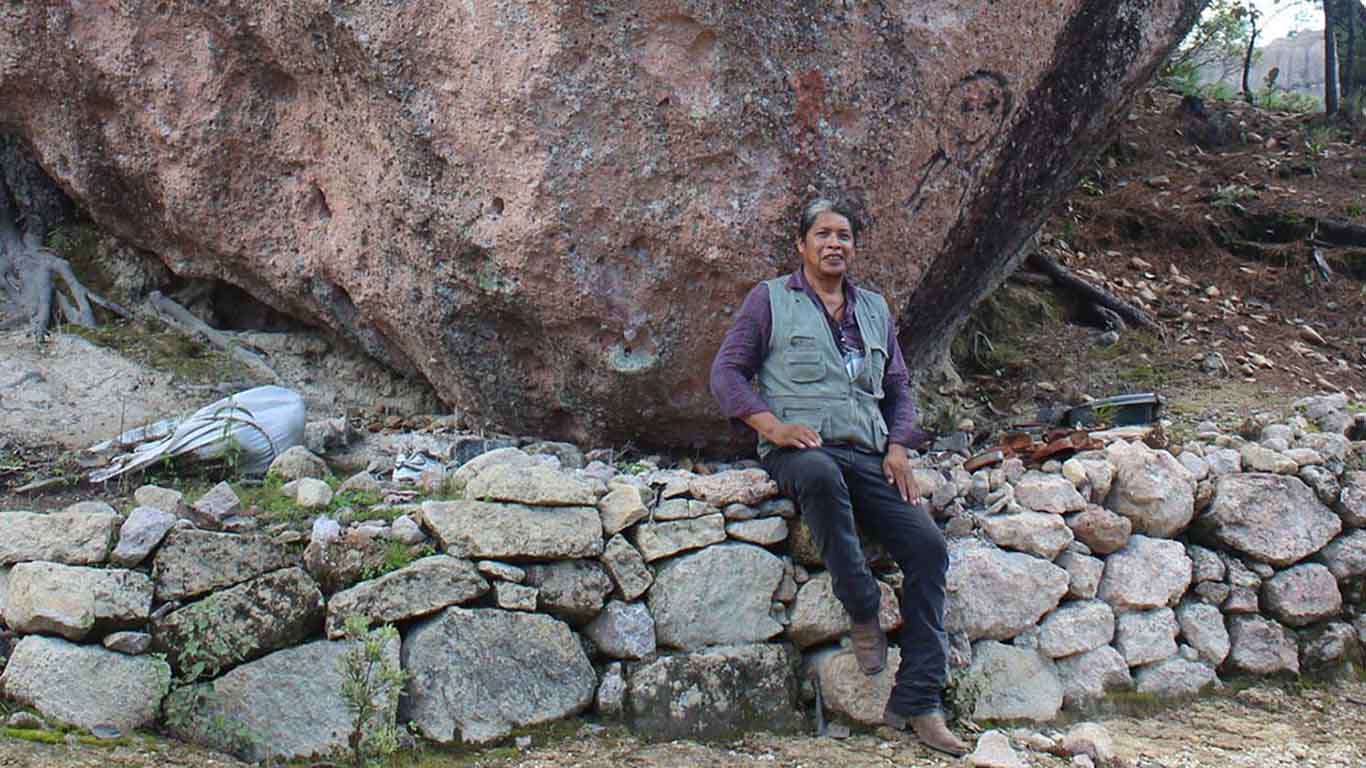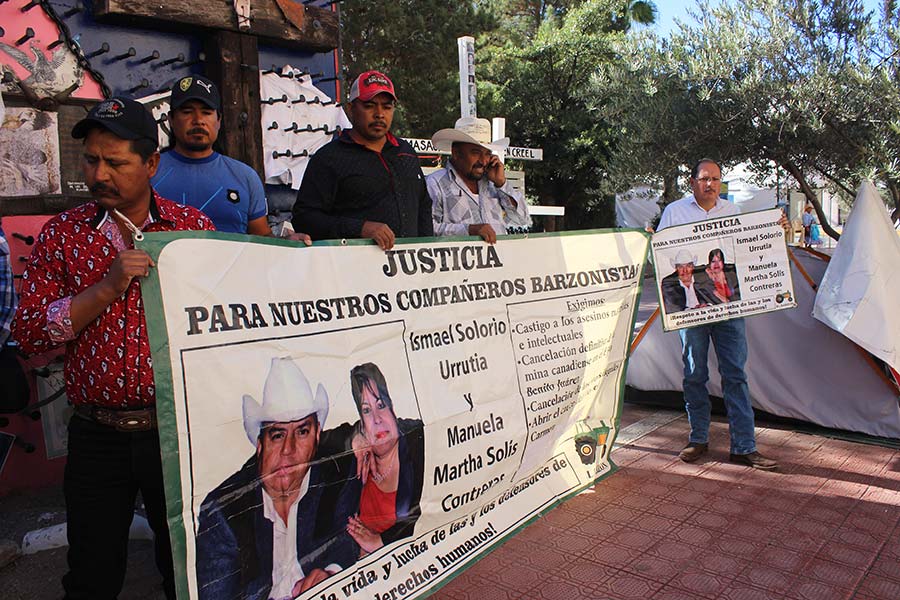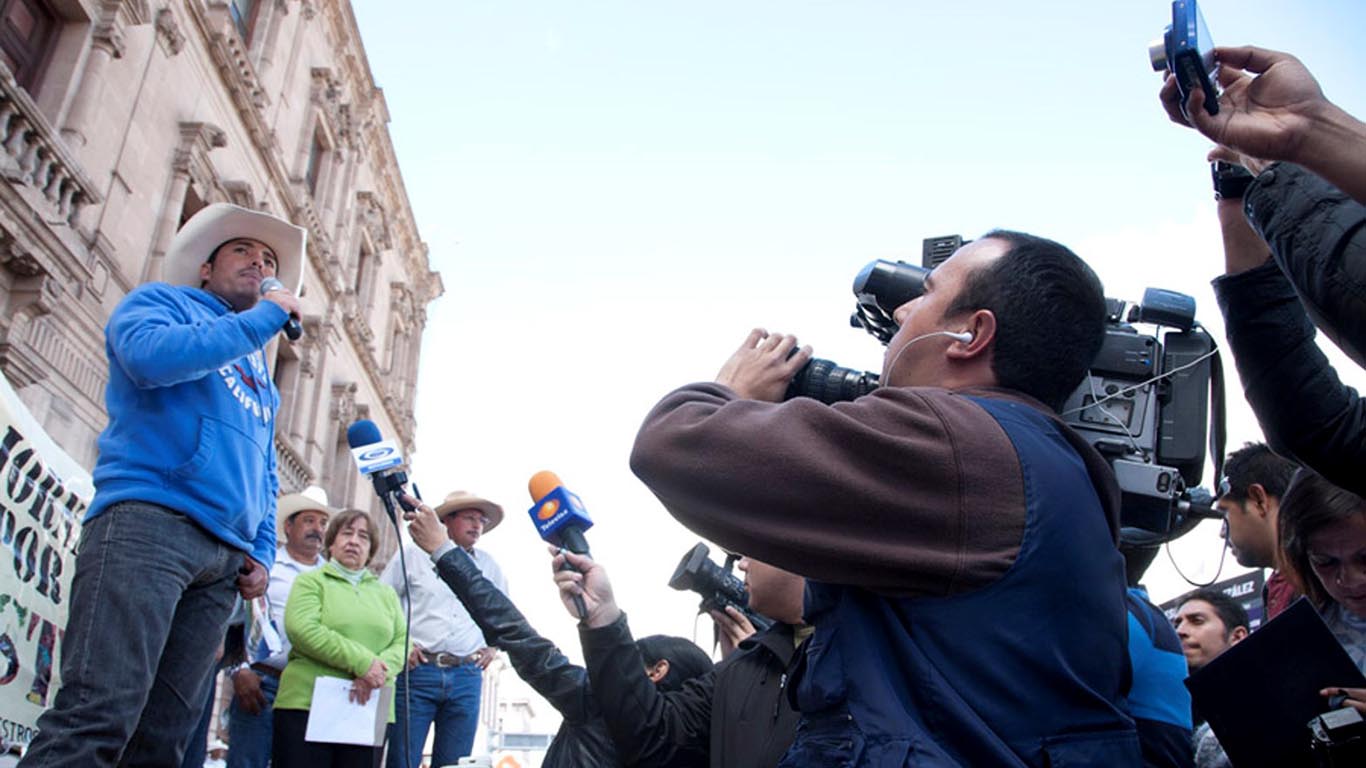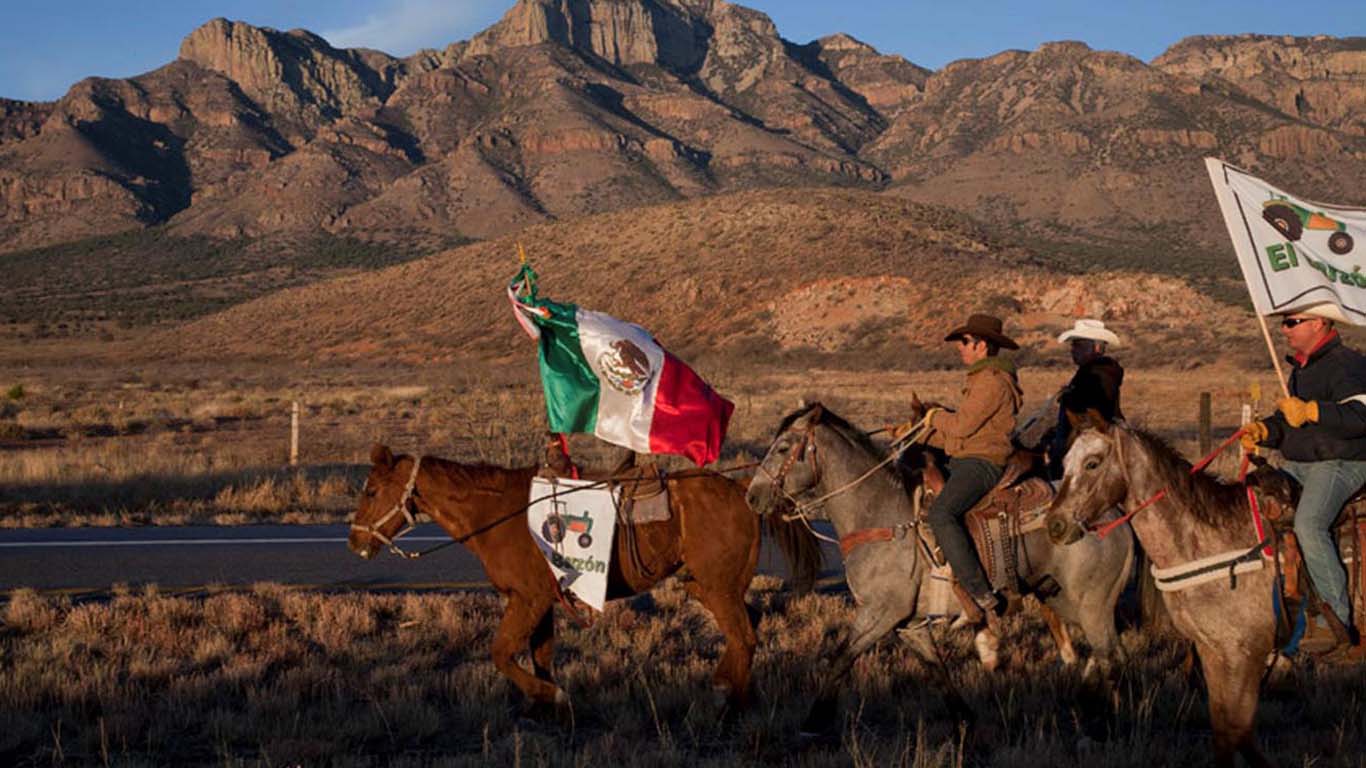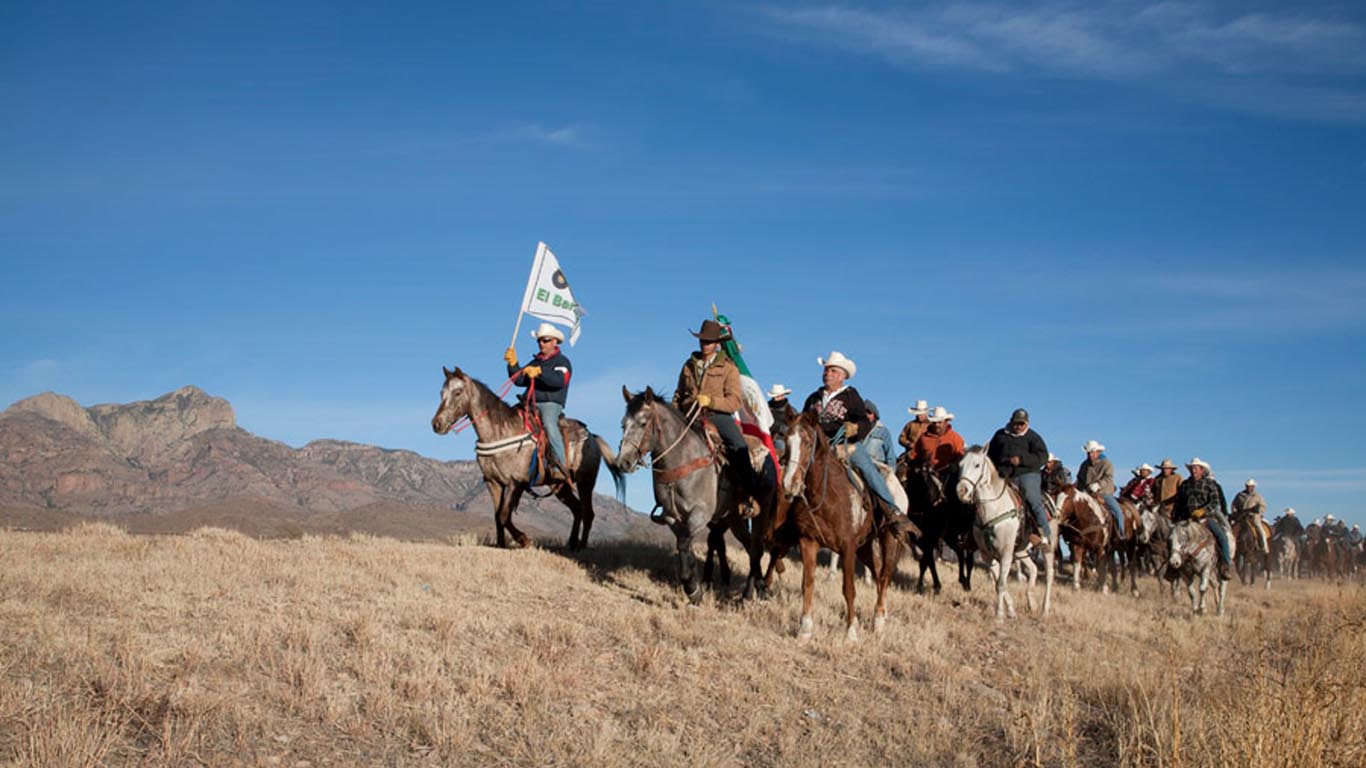From the CEDEHM, we have accompanied 82 human rights defenders – members of civil society organizations – dedicated to the defense of the territory of indigenous people, the environment, and women’s rights, so that they can continue their work.
These organizations are: Alianza Sierra Madre A.C. (Sierra Madre Alliance, Civil Association) , Bowerasa A.C. (Making Way, Civil Association), Centro de Derechos Humanos de las Mujeres A.C. (Women’s Human Rights Center, Civil Association), Centro de Derechos Humanos Paso del Norte A.C. (North Pass Human Rights Center, Civil Association), Comisión de Solidaridad y Defensa de los Derechos Humanos A.C.(Commission on Solidarity and Defense for Human Rights, Civil Association), Consultoria Técnica Comunitaria A.C. (Communitary Technical Consulting, Civil Association), El Barzón, Civil Association, and members of communities of the Sierra Tarahumara, victims of forced desappearance.
The persons in this group are beneficiaries of protection measures, either by the Protection Mechanism for Human Rights Defenders and Journalists, by the Inter-American Commission on Human Rights (IACHR) and/or by the Inter-American Court of Human Rights, because of the high-risk situation in which they perform their work.
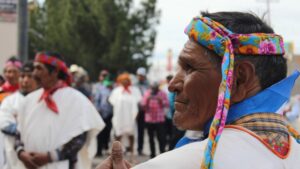
Derived from the exercise of their work, both in Mexico and in our state, human rights defenders are victims of threats, acts of harassment, assaults, attacks, and killings, among other serious manifestations of violence perpetrated by members of organized crime, opposition groups, and even the private initiative and actors of Government.
Faced with the threat of reprisals, defenders are often forced to work under special security measures, such as escorts, and even to change their life project in the absence of effective protection measures, as well as having high levels of risk to them and their families.
All of the above mean living under a constant pressure that can become unsustainable and can lead to feelings of fear, anxiety, and depression, as well as serious emotional impacts on human rights defenders.
Therefore, in collaboration with the Psychosocial Support Area, we build protection strategies for the integral health of advocates, through collective reflection days, psychosocial support, individual therapies, collective group support therapies, self-care days, and training in the field.

We carry out work to accompany and represent human rights defenders who are at risk, to access national and international mechanisms for protection, and to implement measures necessary to guarantee their life and integrity of the defenders through them.
We recognize the need for these measures to be sufficient, effective, and appropriate, and to act against the structural causes of threats to their security.
Measures should protect defenders from the risk situations in which they find themselves, end these circumstances, and allow them to continue in the exercise of their human rights activities.
As part of our activities to provide legal representation to the defenders we accompany, we do the following:
- Documentation of cases and incidents.
- Filing and monitoring complaints.
- Legal representation in criminal investigations.
- Legal advice on situations that cause levels of risk.
- Accompaniment and legal representation before national and international protection mechanisms.
- National Mechanism for the Protection of Human Rights Defenders and Journalists of the Ministry of the Government.
- Inter-American System of Human Rights, through the request and litigation of precautionary measures before the Inter-American Commission on Human Rights, and provisional measures before the Inter-American Court of Human Rights.
- Monitoring and representation in the implementation of protection measures, national or international, before the Mexican State.
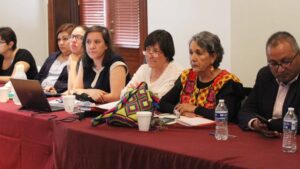
Alianza Sierra Madre CSO
Alianza Sierra Madre A.C. (ASMAC) is a non-governmental organization established in 2007 that works with the in Odami and Rarámuri indigenous people of the Sierra Tarahumara, mainly with the communities of Baborigame, Choréachi, Coloradas de la Virgen, Cordón de la Cruz, Mesa Colorada, and Tepozán, in the municipality of Guadalupe and Calvo, Chihuahua.
The organization promotes the rights of defense of land and territory, preferential access to natural resources, food, education, and the full exercise of the culture of these communities.
Coloradas de la Virgen and Choréachi have fought for more than 30 years to defend their ancestral territory from mixed chieftains who illegally seek to take advantage of their natural resources, which has brought them serious consequences.
Due to the violence, insecurity, and impunity that prevail in the area, the territorial defense of Choréachi y Coloradas de la Virgen has resulted in a series of threats and aggressions against members of the organization and the leaders of both communities. As a whole, ASMAC has therefore carried out emerging activities for the care of people at risk for its work in defending the territory.
From CEDEHM we accompany the processes of provisional measures granted by the Inter-American Court of Human Rights, as well as the measures of the Protection Mechanism for Human Rights Defenders and Journalists of the Secretary of the Government.
Choréachi
Also known as Pino Gordo, Choréachi is a Rarámuri community made up of 800 people living in an area with more than 32 thousand hectares. Due to a technical error, about 15 thousand 200 hectares of its territory were distributed without right by the Ejidal Rights Certification Program (PROCEDE), and improperly included in ejidos such as Pino Gordo and Coloradas de los Chávez.
In addition to sustaining a legal dispute of the territory against the agrarian community Coloradas de los Chavez, at the same time, they are held invalid by forest use permits, and are stalked by the presence of criminal groups linked to drug traffic which have an interest in the use of their lands. The struggle and legal defense for the recovery of their lands has led those who make up this community to be victims of murders, assaults, threats, and harassment.
Due to the high-risk situation, in October 2014 the IACHR took precautionary measures to protect Prudencio Ramos, Ángela Ayala, and their families. Prudencio and Ángela are leaders of Choréachi who were forcibly displaced after the unpunished murders of Jaime Zubías and Socorro Ayala, members of the community, in the year 2013.
On March 25, 2017, the Inter-American Court of Human Rights ordered the Mexican State to take urgent protection measures –known as provisional measures – to ensure the life, integrity, and safety of Choréachi members. As a historical fact, this was the first time that the Inter-American Court issued collective measures for an entire community of Mexico.
The granting of the provisional measures shows the Mexican State’s failure to comply with the precautionary measures issued by the IACHR. In addition, it implies recognition of the situation of risk, violence, and abandonment that prevails in Choréachi.
These measures are in addition to those adopted by the National Commission for Human Rights (CNDH for its acronym in Spanish) on February 3, 2018, addressed to the National Security Commission and the General Government Secretary of Chihuahua, for the protection of all members of the community. Measures that still have not been implemented.
After ten years of litigation, in October 2018, the Agrarian Higher Court recognized the possession of the territory to the community of Choréachi. Although the judgment was appealed by the Presidency of the Republic and by the mixed community of Coloradas de los Chavez at the same time, it sets an important precedent in the struggle for the recognition of the ancestral territory of the indigenous people of the state.
See here for the decision of March 25, 2017 of the Inter-American Court of Human Rights on the granting of provisional measures for members of the indigenous community of Choréachi.
See here the precautionary measure No. 60-14, resolution 51/2016 of the IACHR, on the issue of expansion of beneficiaries in favor of members of the indigenous community of Choréachi with respect to Mexico.
See here the precautionary measure No. 60-14, resolution 29/2014 of the IACHR, in the issue of Prudencio Ramos and others with respect to Mexico.
In October 2015, Juan Ontiveros, Police Commissioner from Choréachi, offered his testimony regarding problems about the indigenous communities of the Sierra Tarahumara, which was handed over to the IACHR during a meeting of implementing precautionary measures.
Juan was killed on January 31, 2017. Days before, he traveled to the city of Chihuahua to participate in a meeting with the staff of the Human Rights Unit of the Secretary of the Government to discuss the problem of insecurity and the territorial conflict of its community.
In April 2019, the General Attorney of the State of Chihuahua carried out the capture of the alleged murderer of the defender. In September of the same year, he was linked to criminal proceedings.
Even today, it is unfinished business to bring to justice all the people responsible for Juan’s murder.
Coloradas de la Virgen
Coloradas de la Virgen is a Rarámuri community located in the municipality of Guadalupe and Calvo, Chihuahua, which during decades and before the absence of authority, has defended its territory, forests against undue off, and logging. As a result, its integrants have faced a series of attacks and threats for years.
Since 1973, at least 18 people linked to the defense of the territory and natural resources of this community have been killed in Chihuahua, including Isidro Baldenegro and Julián Carrillo. About half of the total of these murders have occurred since 2016.
Isidro Baldenegro was a Rarámuri leader who dedicated his life to the preservation of forests. He repeatedly denounced illegal logging, committed by the private sector in complicity with organized crime. His environmental and advocacy activity made him internationally recognized in 2005, when he was awarded the Goldman Prize award given to environmental defenders.
Isidro was killed on January 15, 2017. His murder was condemned in Mexico and internationally. This crime is the first case of a human rights defender that succeeded in going to court and for which a conviction has been issued in the state of Chihuahua.
Julián Carrillo was a Rarámuri leader who from 1992 was chosen by his community to occupy different positions, functions which included the care of the territory, forest, water, and wild animals of Coloradas de la Virgen. For years, he was one of the main defenders against illegal logging and mining in the Sierra Tarahumara.
Because of the risk situation linked to the exercise of their work, since 2014, both Julián and members of Alianza Sierra Madre became beneficiaries of the Protection Mechanism for Human Rights Defenders and Journalists. However, the aggressions continued.
In an interview with Amnesty International, weeks before his assassination, Julián reported his concern about the high levels of violence in Coloradas de la Virgen; generated by the division of the community due to the granting of ejidal rights to mestizos and the presence of organized crime, which had taken over the area with the aim of sowing illegal crops such as cannabis and poppy.
Since 2015, five relatives of Julian, including his son, were killed in violent circumstances by activities related to the defense of their territory: on February 5, 2016, his son, Victor Carrillo; on July 1, 2016, his nephew, Guadalupe Carrillo; on July, 2017, another of his nephews, Alberto Quiñones; on July 1, 2018, his son-in-law, Francisco Chaparro.
Julián was killed on October 24, 2018, two weeks after the denouncement of the existence of a mining concession was reported to three individuals in Coloradas de la Virgen. Within a year of this event, 16 members of Julian´s family, including his widow, children, daughters-in-law and grandchildren, were displaced without a security guarantee and without the possibility of returning home in fear that the attacks will continue.
Two people have been arrested and investigated, but no responsibilities have been delineated for the murder of Julian. ASMAC emphasizes the need for the authorities to carry out an investigation in the light of the context and activity of Julián as an advocate of the territory and environment that, among other things, allow the intellectual authors of this crime to be identified and sanctioned.
- Between bullets and oblivion. Absence of protection for defenders of the territory in the Sierra Tarahumara.
On January 24, 2019, three months after Julián Carrillo’s unpunished murder, Amnesty International presented in the city of Chihuahua the report “Between Bullets and Oblivion: Absence of Protection of Defenders of the Territory of the Sierra Tarahumara”,in which it was believed that the Mexican state failed to comply with its obligation to protect the Rarámuri defender.
The publication related the story of the failure of the Mexican State to offer effective protection to the defenders of the land, territory, and environment in the Sierra Tarahumara, specifically the members of the Rarámuri community of Coloradas de la Virgen. Amnesty International documented the case of the Rarámuri defender Julián Carrillo, who was killed in October 2018, despite having measures of protection by the Protection Mechanism for Human Rights Defenders and Journalists.
Check out Amnesty International’s report “Between Bullets and Oblivion: Absence of Protection for Defenders of the Territory of the Sierra Tarahumara”.
Bowerasa CSO
Bowerasa, which in Rarámuri means “Making way”, is a civil association created in 1994 by the marriage formed by Estela Angeles and Ernesto Rábago, together with a group of priests and nuns, with the aim of accompanying the Rarámuri communities in defending their territory, particularly those located in the municipality of Carichí, such as Baquéachi, Bakuséachi, Chinéachi and Bowetzérare.
Bowerasa advises these communities on the legal defense of their territory and on the regularization of ejidal patterns. They are also accompanied through of the implementation of projects on education, health, and recognizing their human and community rights.
Baquéachi
Baquéachi is a Rarámuri community located in the municipality of Carichí, covering an extension of 44 thousand 784 hectares and that since 1927 has fought for the defense of its territory.
Over the years, ranchers from the municipality of Nonoava stripped them of 7 thousand 800 hectares; while Carichí’s ranchers ended up snatching around 25 thousand hectares. The indigenous of Baquéachi live only in 11 thousand of the most of 44 thousand hectares that historically belonged to them.
With the legal representation of lawyer Estela Ángeles, the Rarámuri community of Baquéachi won 33 trials against the mestizo ranchers of Nonoava and Carichí, achieving the recovery of more than 21 thousand hectares from their territory.
Therefore, after almost 15 years of Bowerasa´s legal defense, and despite the constant threats and grievances of the invaders, the indigenous community of Baquéachi celebrates the sentences given in its favor and the recognition that has been granted to them as legal owners of their territory.
In addition, and in response to the aggressions and spoils that its members have been victims, currently the Inter-American Commission on Human Rights is in process to take collective measures in favor of the indigenous community of Baquéachi.
Ernesto Rábago
Since its inception, legal action for the recovery of the territory of Baquéachi provoked threats and aggressions against Estela Ángeles and representatives of the community, as well as failed bribery attempts.
In March 2009, Bowerasa’s facility in Chihuahua City was set on fire with two molotov cocktails. Nearly a year later, in February 2010, Estela Ángeles’s daughter, was the victim of an assassination attempt.
A few days later, in the same year, Ernesto Rábago was killed in the organization’s office. To this day, the authorities have not solved this crime, so the culprits have not been apprehended nor punished.
Estela Ángeles
Due to the threats and aggressions linked to her work for the defense of the territory of the Rarámuri communities, Estela Ángeles has precautionary measures from the IACHR and is a beneficiary of the National Protection Mechanism for Human Rights Defenders and Journalists.
In addition to the murder of her partner, Ernesto, and the attack on her daughter, the lawyer has been a victim of threats, assaults, smear campaigns, and legal actions seeking to criminalize her work, due to the economic interests that have disrupted her right of self-defense of Rarámuri territory.
The most recent of these attacks occurred in July 2019, when two criminal complaints were filed against her with false and unfounded accusations, to which was added a media campaign of discredit against her.
The efforts of lawyer Estela Ángeles, director of the Bowerasa civil association, and the right of the struggle of the indigenous communities of the municipality of Carichí, have in their roots the search for equality, justice, solidarity, and fraternity for a dignified life.
See here the IACHR precautionary measure No. 2018-10, in Estela Ángeles Mondragón in Mexico, in the Commission’s 2012 Annual Report.
CEDEHM CSO (Center for Women’s Human Rights)
Derived from the work we carry out in the organization, our members have been subjected to aggression, threats, and harassment actions, placing them in a situation of risk. Among other things, they have been victims of raiding and theft of facilities, acts of surveillance, threats and campaigning by government authorities.
Therefore, in June 2008, the Permanent Mission of Mexico of the Organization of American States informed the Inter-American Commission on Human Rights (IACHR) of its concern in this regard and requested the IACHR to consider the adoption of precautionary measures for members of our association, which we were given in later days.
See here the precautionary measure No. 147-08 of the IACHR, in Luz Estela Castro Rodríguez and others with respect to Mexico, in the Commission’s 2008 Annual Report.
Luz Estela Castro
Derived from her work for the defense and advocacy of human rights, Luz Estela Castro has been victim of threats and harassment acts. In response, in 2008, the IACHR adopted precautionary measures for her and other CEDEHM members. After a strong smear campaign against her by government officials of the State of Chihuahua, mainly for her defense in the case of Marisela Escobedo, the IACHR requested provisional measures for her from the Inter-American Court of Human Rights in February 2013.
The Court has issued four rulings reiterating to the Mexican State the implementation of pro-beneficiary protection measures. In 2015, a public hearing was convened in the face of the discrepancy between the government and the representatives in connection with the adequacy of the measures implemented.
In November 2017, the Court requested the National Commission for Human Rights (CNDH for its acronym in Spanish) to conduct a risk assessment and suggest protective measures, but the State has not had the will to implement the recommended measures. The smear campaign against Luz Estela Castro is maintained and intensified since her integration with the Council of the Judiciary of the State of Chihuahua.
See here the resolution of 14 November 2017 of the Court on the granting of provisional measures for Luz Estela Castro Rodríguez.
See here the precautionary measure No. 147-08 of the IACHR, in Luz Estela Castro Rodríguez and others with respect to Mexico, in the Commission’s 2008 Annual Report.
Paso del Norte Human Rights Center CSO
The Paso del Norte Human Rights Center is a civil association located in Juárez City, Chihuahua, founded in 2001 by the priest Oscar Enriquez, with Silvia Méndez being the current executive director of the organization. The Center began work amid a context of violence against women, executions, public security forces corruption, and impunity.
Currently, the Center provides an integral accompaniment, legal counsel, and psychosocial attention to victims of human rights violations with a focus on cases of torture and forced disappearance. It also implements human rights training activities to contribute to the organization of citizenry for the defense and advocacy of their rights.
In 2008, following the militarization of Juarez City within the framework of the security strategy implemented by former President Felipe Calderón, Paso del Norte noted numerous human rights violations in the hands of military personnel: raids, pat downs, arbitrary detentions, enforced disappearances, cases of torture, and extrajudicial executions. This type of aggression continued in 2010, when the Federal Police replaced the work of the Army.
At that time, there was no organization to denounce and take up the representation of these cases. Therefore, the Center began to accompany processes of human rights violations committed by the armed forces and police forces, which, to this day, continue to occur. To help raise awareness of the problem, Paso del Norte carries out denunciation and advocacy work in policies to demand that the authorities eliminate these problems and stop impunity. It also implements advisory and training in the field.
Due to its human rights work, the Center has been the target of harassment and threats by state and federal authorities. In June 2011, the Federal Police raided its members, when 20 troops from that corporation entered their offices, reviewed files and caused damage to the organization’s facilities. The incident generated a recommendation from the National Commission on Human Rights (CNDH for its acronym in Spanish), which subsequently issued precautionary measures on behalf of members of the organization.
This break-in took place a week after the hearing of the “car bomb” case, an emblematic case that is litigated from Paso Del Norte: in 2010, five detainees were tortured in different ways in order to accept charges for the explosion of a car bomb, organized crime, as well as traffic in drugs and firearms.
Subsequently, in May 2011 and because of the intimidation suffered by the corepresentation of the case of forced disappearance of three members the Alvarado family, the Inter-American Commission on Human Rights granted precautionary measures for two members of the association and ordered the adoption of the necessary measures to guarantee their life and integrity.
Despite the above, the aggressions against the organization continued. In September and October 2012, its members were monitored and harassed by elements of the General Attorney and the Ministerial Police of the State of Chihuahua. Paso del Norte attributes the level of high risk to which they are exposed to the numerous allegations they have filed against elements of the security forces.
See here the precautionary measure No. 55-10 of the IACHR, in Rocío Irene Alvarado Reyes, Nitza Paola Alvarado Espinoza, and José Ángel Alvarado Herrera in Mexico, in the Commission’s 2010 Annual Report.
Commission on Solidarity and Defense of Human Rights CSO
In 1987 a group of priests led by Bishop José Alberto Llaguno created the Commission on Solidarity and Defense of Human Rights A.C., with the aim of promoting human, economic, social, cultural, and environmental rights of the indigenous communities of the Sierra Tarahumara in Chihuahua state.
It currently it works in the town of Creel, municipality of Bocoyna, as well as in Chihuahua and Cd. Juárez. COSYDDHAC has the vision of being a professional organization for the education, defense, and difusion of human rights, recognized for its work, that manages to transform the unjust realities of the entity and in society, to contribute to living a humanity with dignity.
The organization carries out its work through five strategic areas. On the one hand, indigenous communities are trained in human rights and are accompanied in the recognition and strengthening of their culture. They are accompanied with counseling and representation and legal defense services.
Restorative and comprehensive justice is promoted, which involves the recovery and social reintegration of formerly delinquent individuals, according to their systems of community organization, in which the community itself and its governors judge those who commit a crime.
In addition to the above, due process is observed in the main Centers of Social Reinsertion of the State of Chihuahua, to ensure that each case is carried out with strict adherence to the rights of indigenous individuals.
COSYDDHAC also works for the advocacy and harmonization of legislation, i.e., for fair legislation to guarantee the rights of indigenous peoples. Finally, work is being done for the organizational strengthening and linkage of the partnership with other organizations, groups, and human rights defenders.
COSYDDHAC has a long history of reporting serious human rights violations perpetrated in the entity. Since its creation, it has accompanied more than 500 cases in which abuses of authority, impunity in criminal matters, and labor matters have been reported, as well as as a series of problems, irregularities, and obstacles in the prison system.
Javier Ávila
Javier Avila is a Jesuit priest with more than 30 years of work in the Sierra Tarahumara. He has gained international recognition for his work as a human rights defender of the indigenous communities, and since 2008 has accompanied the victims of the Creel massacre.
On August 16, 2008, an armed commando killed 12 youth and a baby in the village of Creel, municipality of Bocoyna, Chihuahua. The event was reported as the first massacre committed by members of organized crime against innocent civilians, following the announcement of the war against drug trafficking promoted by former President Felipe Calderón.
As part of this same strategy and within the framework of the Chihuahua Joint Operation, implemented in the entity from March 2009, a group of military personnel were responsible for the forced disappearance of Nitza Paola Alvarado Espinoza, Rocío Irene Alvarado Reyes, and José Angel Alvarado Herrera in the Ejido Benito Juárez of the municipality of Buenaventura, Chihuahua.
Since COSYDDHAC’s accompaniment to relatives of the following events, the members of the association have suffered serious threats and harassment by members of the Army.
On the occasion of the assaults suffered by the co-representation of the Alvarado Espinoza and Others vs. Mexico case, in November 2010 the Inter-American Court of Human Rights granted provisional measures for members of the organization. Meanwhile, in May 2011, the Inter-American Commission on Human Rights took precautionary measures for Javier Ávila in response to his high-risk situation.
See here for the decision of 26 November 2010 of the Court on the granting of provisional measures in Alvarado Reyes and Others.
See here the precautionary measure No. 55-10 of the IACHR, in Rocío Irene Alvarado Reyes, Nitza Paola Alvarado Espinoza, and José Ángel Alvarado Herrera in Mexico, in the Commission’s 2010 Annual Report.
Consultoría Técnica Comunitaria CSO
Consultoría Técnica Comunitaria CSO (CONTEC) is a civil association established in 1999. The organization was created, inspired by the work of Bishop José Alberto Llaguno and the Commission on Solidarity and Defense of Human Rights, in favor of the human rights of the indigenous peoples of the Sierra Tarahumara in the state of Chihuahua.
CONTEC seeks to strengthen the organization and capacity for self-management of communities; to make sure that public policy responds to their urgent needs and contributes to improving their quality of life; as well as influencing to improve the legal framework for them to be recognized and guarantee the rights of individuals, ownership of their territory and the management of their natural resources.
CONTEC accompanies the communities of Bosques de San Elías Repechique, in the municipality of Bocoyna; Huitosachi and Bacajípare, in Urique; El Manzano, in Uruachi; Mala Noche, in Guadalupe y Calvo; and Ejido Tewerichi, in Carichí. Communities that have historically lived in conditions of poverty, exclusion and marginalization.
This organization works on legal defense and advocacy so that the Mexican State guarantees the rights of persons in the situation of forced displacement; administrative sentences and rulings are complied with, so that communities have ownership of their lands; the overexploitation of natural resources and extractive megaprojects are prevented; the Sierra Tarahumara is recognized as a priority attention zone, and public policies are adopted to address poverty, marginalization, and social inequality.
Projects are also accompanied for the strengthening of community organization and participation mechanisms, as well as to counteract gender violence, prevent addictions, and promote sexual and reproductive health within the Rarámuri communities with which they collaborate.
The Apple Tree
El Manzano is a community belonging to Ejido Rocoroivo in the municipality of Uruachi, Chihuahua. Located in an isolated area with difficult access, its population amounts to more than 400 Rarámuri people who are engaged in forestry, agriculture, and livestock for self-consumption.
Due to the presence of organized crime, during the last several years manifestations of violence against the community have been accentuated. Its members have been victims of serious human rights violations, such as murders, disappearances, illegal deprivations of freedom, burning and destruction of their homes, and attacks with high-caliber weapons, among others.
Criminal groups control the area: they seize the lands for poppy planting and seek to forcibly recruit youth. Brutal attacks, the insecurity crisis, and latent impunity have led to the forced displacement of many families in the community, who are forced to migrate in search of better living conditions.
The ejidal commissioner, Alejandro Soto, brother of Rarámuri Cruz Sánchez Lagarda, was assassinated in 2014. After his murder, nearly a hundred people were forced to leave their homes. During the following years, between 2015 and 2016, at least four more murders occured, as well as the disappearance of a young member of the community.
In view of the seriousness of these events, on April 27, 2015, the Inter-American Commission on Human Rights (IACHR) decided to grant precautionary measures for the students of the community, being the first collective measures in the State of Chihuahua adopted by the Commission. Today, the people of El Manzano continue to have forced displacement and live in conditions of precariousness and marginalization, without the possibility of returning to their territories.
See here the precautionary measure No. 106-15, resolution 15/2015 of the IACHR, in the issue of Cruz Sánchez Lagarda and others with respect to Mexico.
Cruz Sánchez Lagarda and others
When in 2015 members of organized crime set fire to ranches, houses, and cars, 36 families living in El Manzano were forced to flee and the community remained displaced. Supported by civil organizations in the capital, they denounced the fact before the Attorney General of the Country and the Attorney General of the State.
In March 2015, Benjamin Sánchez Cruz, son of the human rights defender and former governor of the Ejido de Rocoroivo, Cruz Sánchez Lagarda, was assassinated. In the months that followed, crime groups continued to commit a series of homicides and disappearances against other youth of the community. In June 2016, another son of Cruz Sánchez, Gilberto Sánchez Cruz, also was executed.
In the face of the crisis of violence and insecurity, on 27 April 2015 the IACHR took precautionary measures to preserve the life and personal integrity of Cruz Sánchez Lagarda, his relatives and the other identified members of the community, and ordered that the necessary measures be taken to ensure that Cruz can carry out his activities as a human rights defender, without being subjected to acts of violence and harassment.
See here the precautionary measure No. 106-15, resolution 15/2015 of the IACHR, in Cruz Sánchez Lagarda and others with respect to Mexico.
El Barzón CSO
In 1994 México went through a serious economic crisis. Agricultural producers and people with credits or real estate financing could not afford their loans due to high bank interest, so they began to lose their land, houses, and property.
People were forced to leave their economic activities to prevent evictions and avoid losing their heritage: that’s how El Barzón was born. From then until the present day, El Barzón provides legal counsel to people who have Infonavit loans who cannot pay, either for the high banking interest, or for the murder of one of the members of their families and the economic repercussions that this entails, such as the inability to cover real estate debts.
In June 2012, from El Barzón, a denunciation movement was opened against the overexploitation of subterrenean and surface waters at the hands of a group of producers who carried out the indiscriminate opening of wells in restricted areas by presidential decree and which, without the corresponding legal concessions, they used land for agricultural activity, which led to the destruction of the flora and fauna of the región.
Based on the complaints and mobilizations undertaken, El Barzón was constituted as a social movement of national scope for the protection of social and family heritage; the defense of the rights of the agricultural sector; the right to land and water; as well as the protection of the environment and natural resources.
Ismael Solorio and Manuelita Solís
In 2006, a Canadian company was established with deception in the Ejido Benito Juárez, of the municipality of Buenaventura in Chihuahua, violating environmental standards and acquiring rights of use with them illegally. Around 2012 the company searched for the operation of mining activity.
In the face of the inaction of the authorities, members of El Barzón warned about the environmental impacts that the mine would bring to the community of Benito Juárez, such as pollution of the waters and the affectation of local flora and fauna. They therefore opposed the opening of the El Cascabel mine and its Canadian subsidiary Mag Silver for their illegal action that contravened agricultural laws and, above all, environmental laws.
In the Ejido there was a climate of confrontation. There were acts of smear towards the barzonist Ismael Solorio, who was beaten by 20 promoters of the mining company in October 2012. El Barzón requested support from the Secretary of the Government to stop and prevent the aggressions from escalating into violence. However, on October 22 of the same year, Ismael Solorio and his wife, Manuelita Solís, were killed in the commercial corridor of the city of Cuauhtémoc.
Following this, the Inter-American Commission on Human Rights (IACHR) granted precautionary measures for the children of Ishmael and Manuelita, as well as for other members of El Barzón. In November 2012, a month after the execution of both defenders, the expulsion of the Canadian company and the restriction of mining activity for 100 years in the Ejido Benito Juárez was achieved.
See here the precautionary measure No. 388-12, resolution 1/2016 of the IACHR, in the case expanding beneficiaries of the case of Edgar Ismael Solorio Solís and others with respect to Mexico.
We believe that it is extremely necessary to make visible the problems and the obstacles faced by defenders for their recognition and attention on the part of the authorities. Therefore, through the Accompaniment Program for Human Rights Defenders, we carry out advocacy efforts to generate structural changes in institutions and public policies, so that they can respond to the needs of defenders in an effective and appropriate way.
We seek to help ensure the human rights of defenders through the following activities and strategies:
- Impact on public institutions of the three levels of government.
- Push for the creation and improvement of public policy at the state and national levels.
- Training to public civil servants.
- Training of defenders, collectives, and civil society organizations.
- Articulation with other civil society organizations at the state, national, and international levels.
- Diffusion of successful experiences.
- Public reporting of human rights violations of human rights defenders.
- Visibility of situations of risk and vulnerability of defenders.
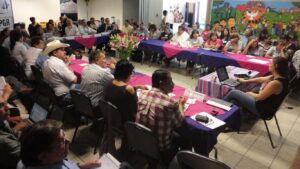
- Advocacy at the state and national level
Together with 25 other organizations, we pushed for the Early Warning for Human Rights Defenders and Journalists on 7 March 2016. On 11 August 2016, the Mechanism for the Protection of Human Rights Defenders and Journalists notified the Government of the State of Chihuahua of the adoption of an Early Warning, with the aim of preventing and stopping attacks and assaults against human rights defenders in the entity.
In the context of this same Alert and in accordance with the legislation in force in this area, in June 2017 the Contingency Plan was approved, for which actions, times, and responsibility for the deployment of means were identified to enable defenders to carry out their work in conditions of freedom and security. The actions of the Plan involve local and national bodies, always taking into consideration and in consensus with the requesting organizations.
The Contingency Plan contains 53 actions that are distributed in five working tables: 1. Structural measures to recognize the work of human rights defenders and journalists and access to justice as a guarantee of non-repetition 2. Situation of Vulnerability of Women, Migrants, and Groups of Sexual Diversity, in the Border Area; 3. Environment; 4. Situation of the Sierra Tarahumara, and 5. Journalists.
The Plan involves 26 state-level government instances and 24 federal level. As an unprecedented fact, it covers not only structural issues such as access to justice and recognition of the work done, but also measures that address the situation of risk of defenders, always with the inclusion and participation of civil society. This Plan has been recognized by international authorities for the approach of protection which, if fully implemented, would be a model for the region.
Chihuahua is the state with the largest number of protection measures ordered by the Inter-American System of Human Rights and occupies one of the first places at the national level in assaults against defenders, so the responsibilities against this in the Contingency Plan must be assumed with the urgency that warrants the effective prevention of potential aggressions.
See here the address of the Office of the United Nations High Commissioner for Human Rights at the Contingency Plan adoption ceremony.
See the Contingency Plan here. Preventive measures for the protection of human rights defenders and journalists in Chihuahua.
See here for notification of the adoption of the Early Warning for Human Rights Defenders and Journalists.
See here for a preventive alert for human rights defenders in Chihuahua.
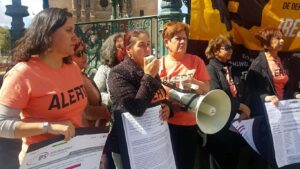
On an ongoing and permanent basis, we have an impact on human rights protection agencies to promote recommendations to the Mexican State, which improve the state response for the protection of human rights defenders.
We partner with organizations at the local, national, and international levels to present urgent actions, communications, and reports on the general situation in Mexico and particularly in Chihuahua.
In the same sense, we are constantly seeking the impact on governments of other countries interested in the human rights situation in Mexico.
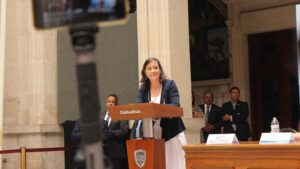
- Early Warning for Human Rights Defenders and Journalists
Together with other human rights organizations in Chihuahua, we have promoted the adoption of the Early Warning Contingency Plan to prevent aggression against human rights defenders and journalists, which has been recognized by international organizations, as a good policy of protection and recognition that, if successful, will be a precedent in the Americas.
We collaborate with 24 civil society organizations of the entity for the articulation and the impetus to the actions contained in the Early Warning Contingency Plan for Human Rights Defenders and Journalists.
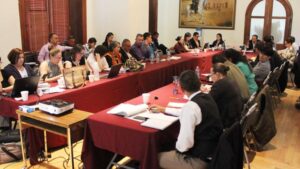
- Conviction in the case of Isidro Baldenegro
The CEDEHM was a legal representative in the case of Isidro Baldenegro, the only case in Chihuahua of a murdered human rights defender which has a conviction.
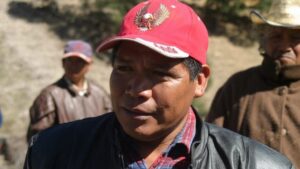
Within the framework of the action on «Strengthening and Dignification of the Work of Human Rights Defenders in Chihuahua and at the National Level» project coordinated by the Center for Women’s Human Rights and Front Line Defenders, with the financing of the European Union, the «Security Grants Program» is available.
This program offers grants (of a maximum amount of EUR 7,500) for security and protection costs for defenders, their organizations or collectives, and journalists. The program is designed to enable HRD advocates to continue their legacy work within their own communities through the development of reliable resources to improve their safety and protect them immediately and in the long term.
Subsidies seek to adapt with the greatest flexibility possible to the needs of defenders. Some of the eligible activities include:
- Improvements to the safety of the offices or personal safety.
- Information technology and digital security improvements.
- Psychological or psychosocial support; advice on well-being and stress management.
- Family support and subsistence.
- Temporary transfer or relocation costs.
To apply for a security grant, you must fill out a short form describing the nature and work of your organization or as an individual, highlight the security risks you face, and detail what kind of support you are requesting. The application is located online through an encrypted form on the Front Line Defenders website: http://bit.ly/FormularioFLD in the box «Send an encrypted request here» or alternatively it can be sent on paper.
The grant program will not provide funds for retroactive transportation expenses. Nor are international organizations financed; organizations that have requested or already receive funds for the same purpose; operating costs; regulations; armed security guards; the care of human rights defenders, as well as human rights projects whose approach is broader than the protection of human rights defenders.
For clarification of questions, contact:
[email protected] & [email protected]







